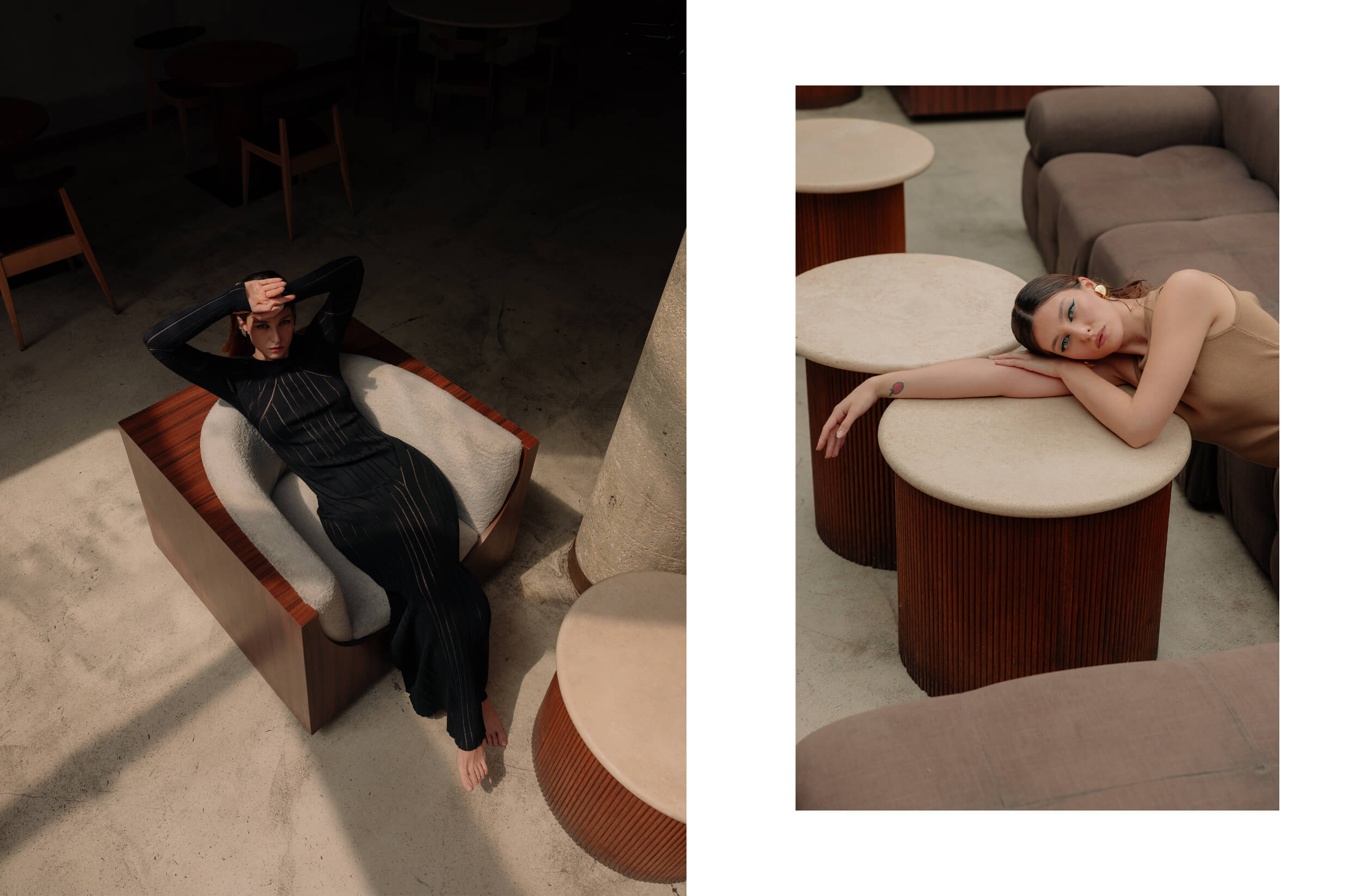Playing the role of Alessandra, a typical millennial attached to a fleeting and material conception of success, Dharma Mangia Woods returns to the screen in Giovanni Bognetti’s new Netflix film “The Price of Nonna’s Inheritance”, the sequel to the hit “The Price of Family”. With her genetically inherited passion for cinema and a professional journey that has led her to tackle complex and varied roles, Dharma shares her on-set experience, the challenges she faced, and the emotions she felt.
From character preparation to the camaraderie on a set graced daily by an iconic cast to deeper reflections on trust, expectations, and personal growth, Dharma takes us into her world, filled with courage, authenticity, and an innate passion for acting. On the background of the suggestive Naos Restaurant, a minimal, contemporary and elegant location, a welcoming place in the heart of Rome, between funny anecdotes and touching moments, we discover a professional who confronts her insecurities with determination, always seeking new challenges and ready to share remarkable experiences with the audience.
What is your first memory related to cinema?
I have several because my mom has always been a huge cinema enthusiast. She studied at the Centro Sperimentale and passed on her passion to me. But my first emotional memory is linked to the film “The Blues Brothers”, which my brother, my two cousins, and I watched in a loop since we were very young. We went crazy for the soundtrack! Whether we understood the story or not, I don’t know, but it was our film. I talked about it a while ago with my brother: one of our cousins watched it again as an adult and said he didn’t find it as good anymore, that it wasn’t the masterpiece we said it was [laughs]. I haven’t seen it in many years, probably because I’m so attached to that memory that I don’t want to change it.
For me, it’s my childhood film, and that’s fine.
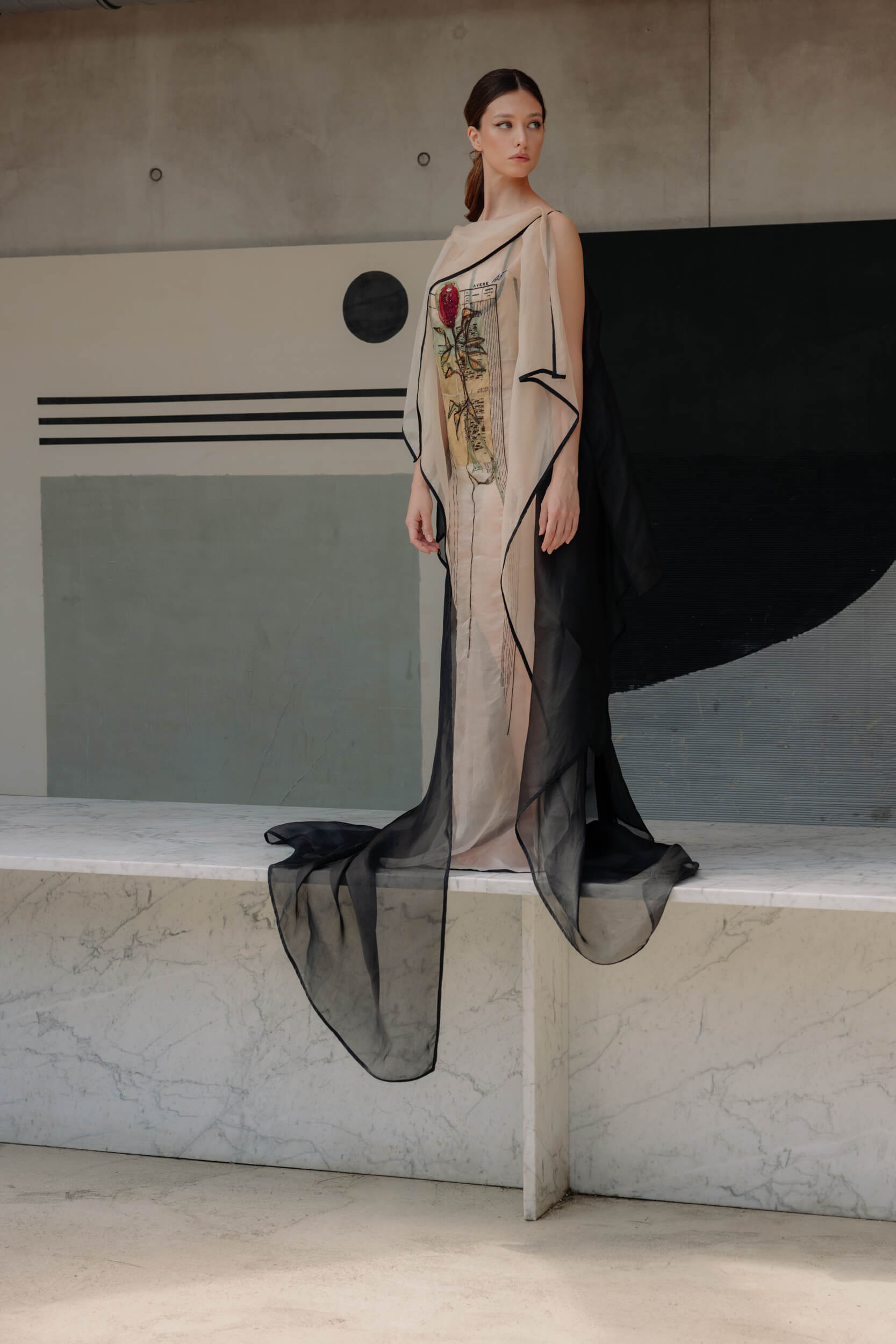
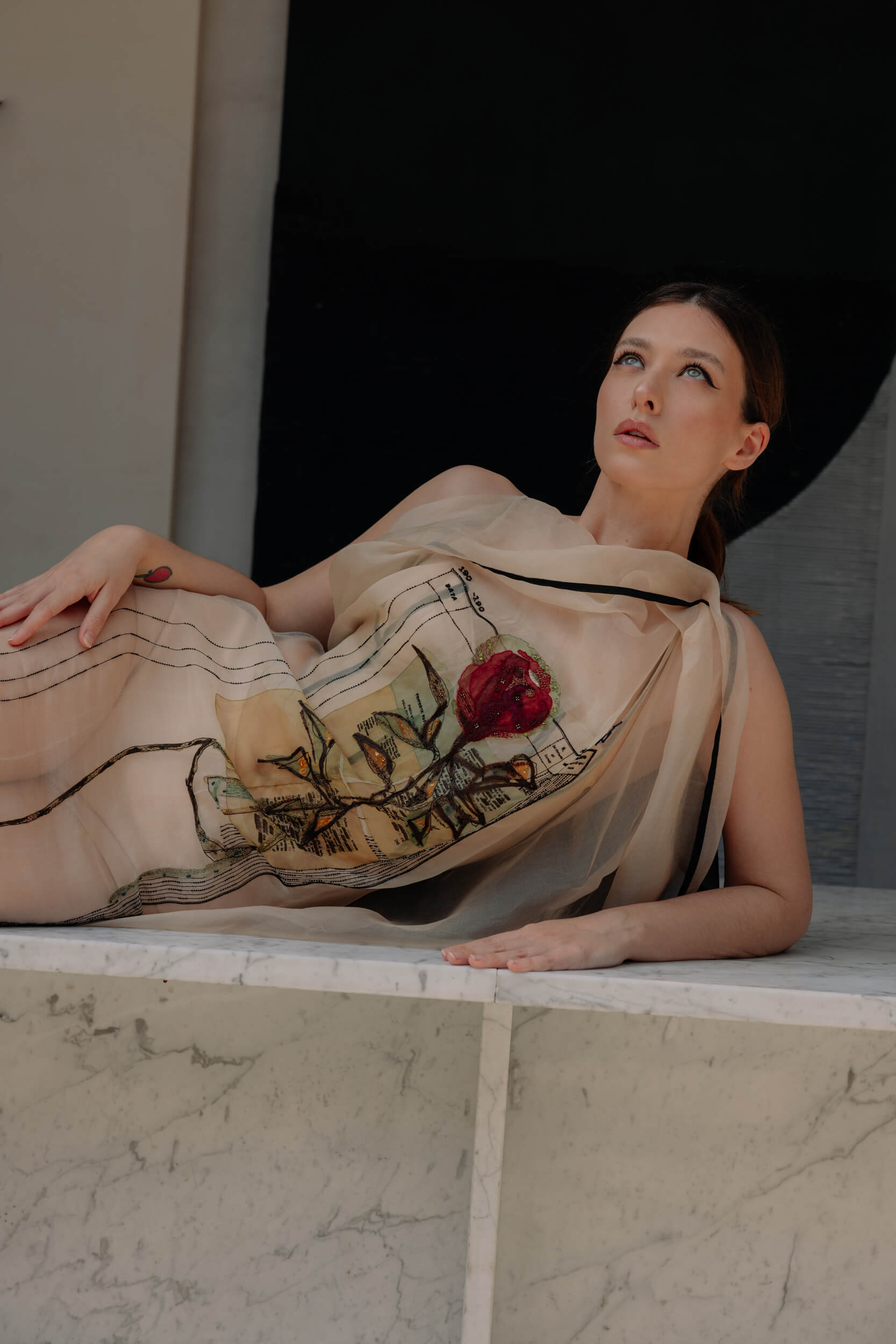
How did you prepare for the role of Alessandra in this sequel? How did the character evolve in “The Price of Nonna’s Inheritance” compared to “The Price of Family”? Did you face any particular challenges?
Well, I’ve had two roles based on real people, like Lietta Pirandello, which required historical research, but generally, I work a lot on empathy. There are aspects of my personality that, when I meet a character, seem to amplify to help me give the character a certain voice. Alessandra and I definitely share a relationship with anxiety, so my preparation was somewhat unconscious; she’s very neurotic, while I have a calmer anxiety. So, I expressed a kind of anxious hyperactivity [laughs]. I got into this role quite easily; it wasn’t too hard, especially since both she and Emilio are faithful representations of our generation—they are very real, in my opinion. They embody traits that are rarely discussed and often criticized, like being “losers”, “anxious”, or young people who can’t get things done.
They are just the result of the “disaster” they live in as part of our generation.
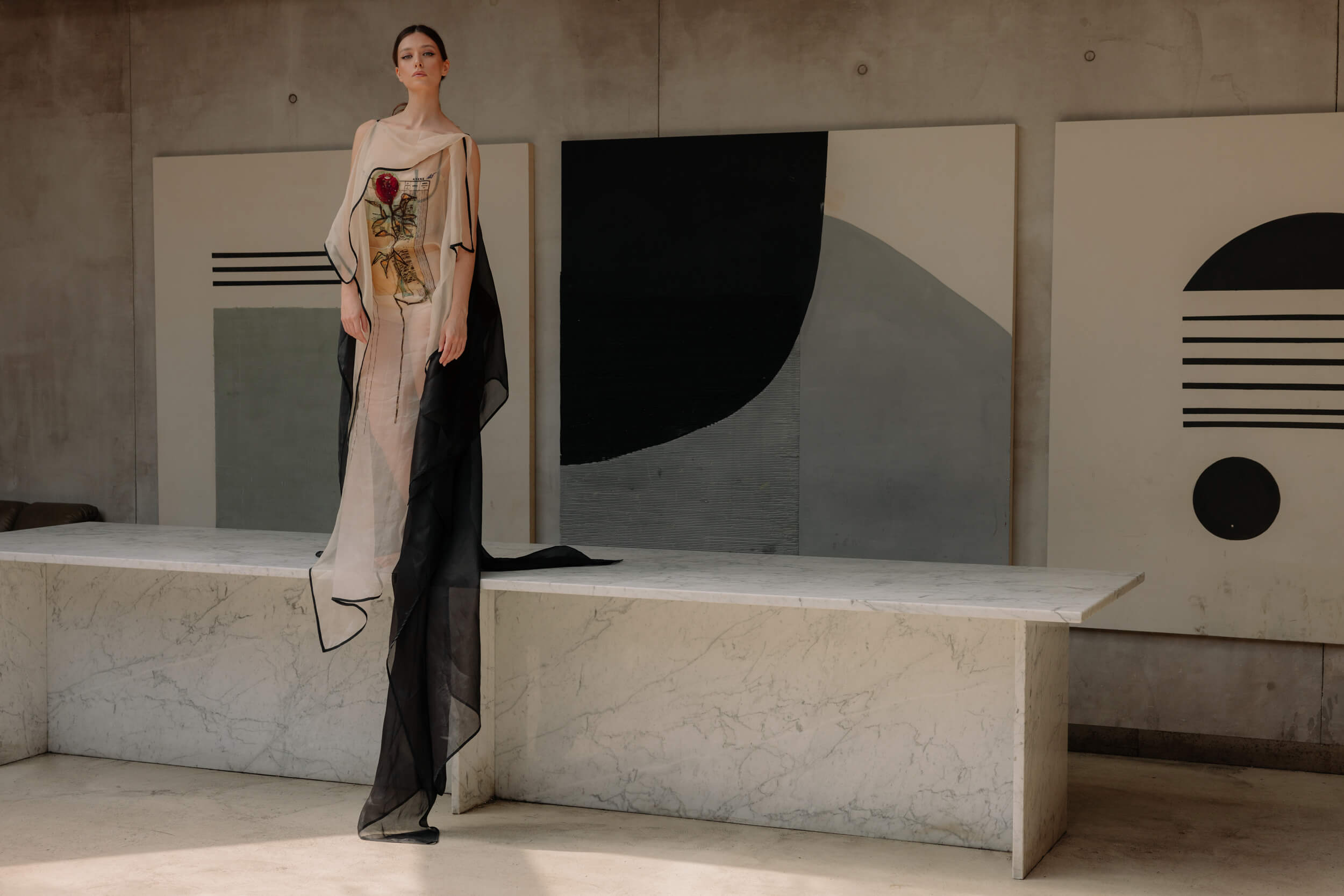
“There are aspects of my personality that, when I meet a character, seem to amplify to help me give the character a certain voice.”
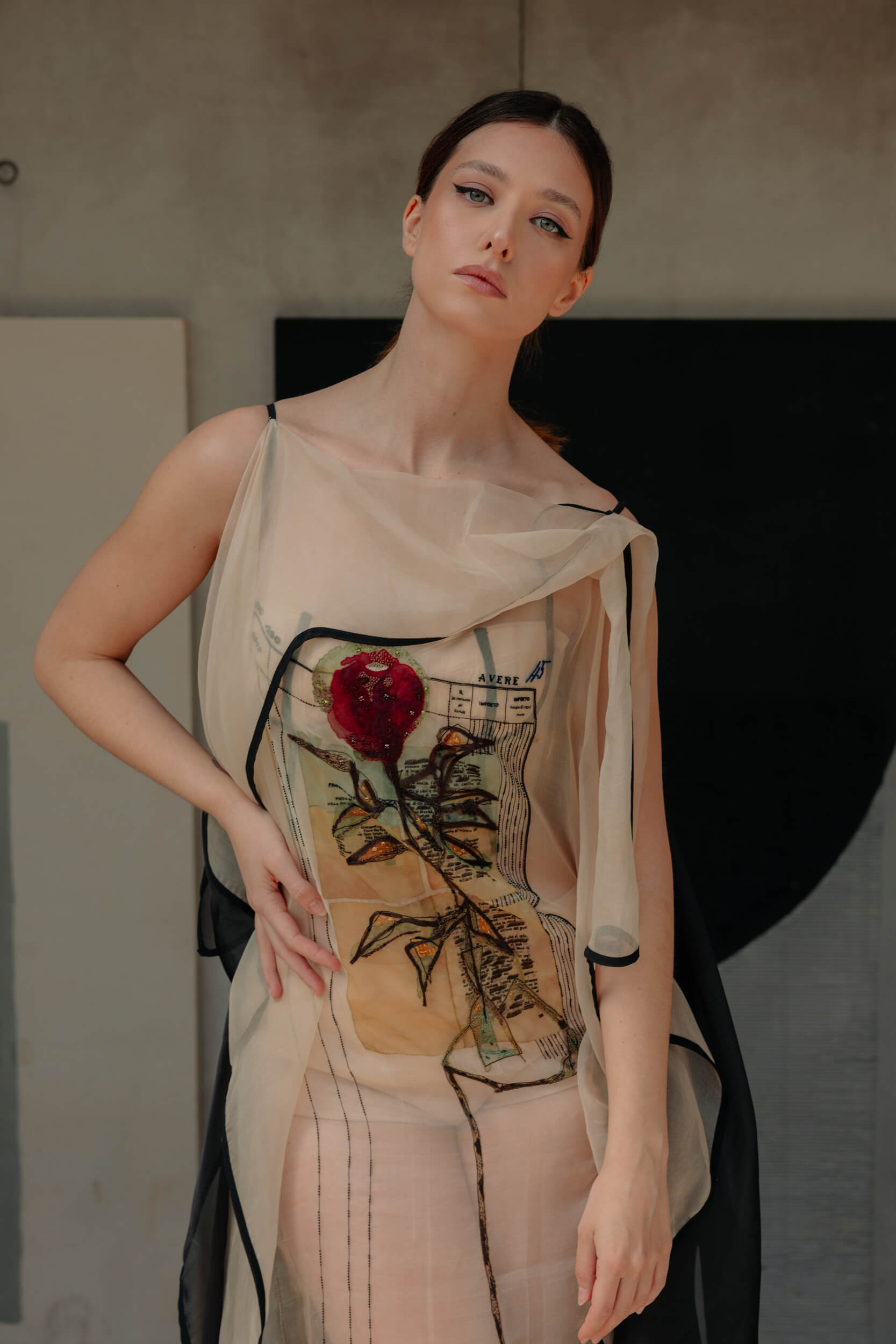
What was your first reaction when you read the script for this new chapter of the story?
It was wonderful, especially because, for the first time, I didn’t have to audition for a role change! [laughs] An amazing feeling. Fortunately, with Giovanni [Bognetti] and the rest of the cast, a wonderful relationship of friendship was created from the very first day. The first time we met was on the set of Colorado, we did a first reading of the script, and it was beautiful: we were all very free to express ourselves, and Giovanni was also very free to write what he wanted. After reading the script, I couldn’t wait to start filming!
What was it like to reunite on set?
It was beautiful! It was like we had never left. Working with Christian De Sica, Angela Finocchiaro, Claudio Colica felt like having a party, almost a vacation, essentially. We were very united, even with the crew, so it was super nice.
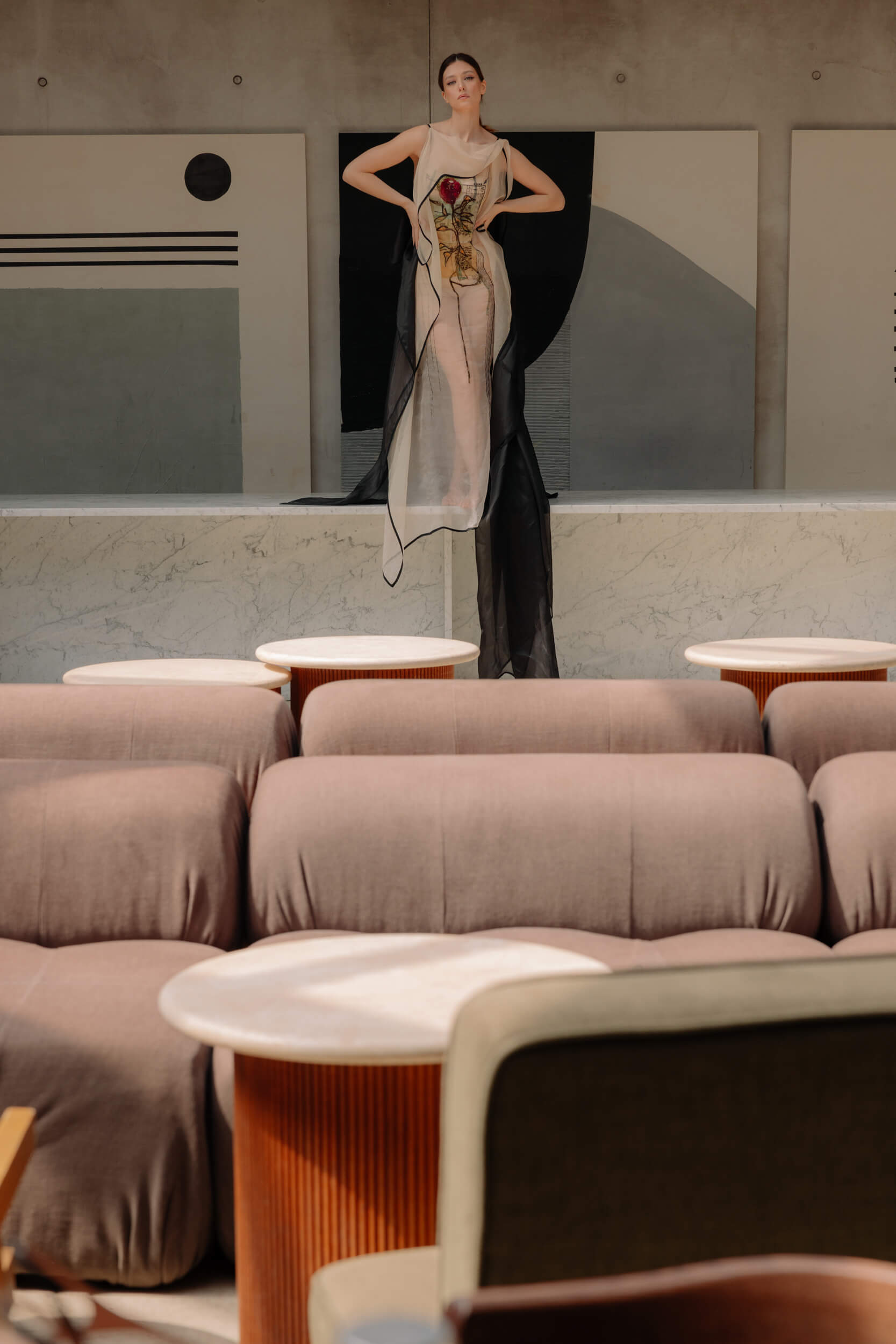
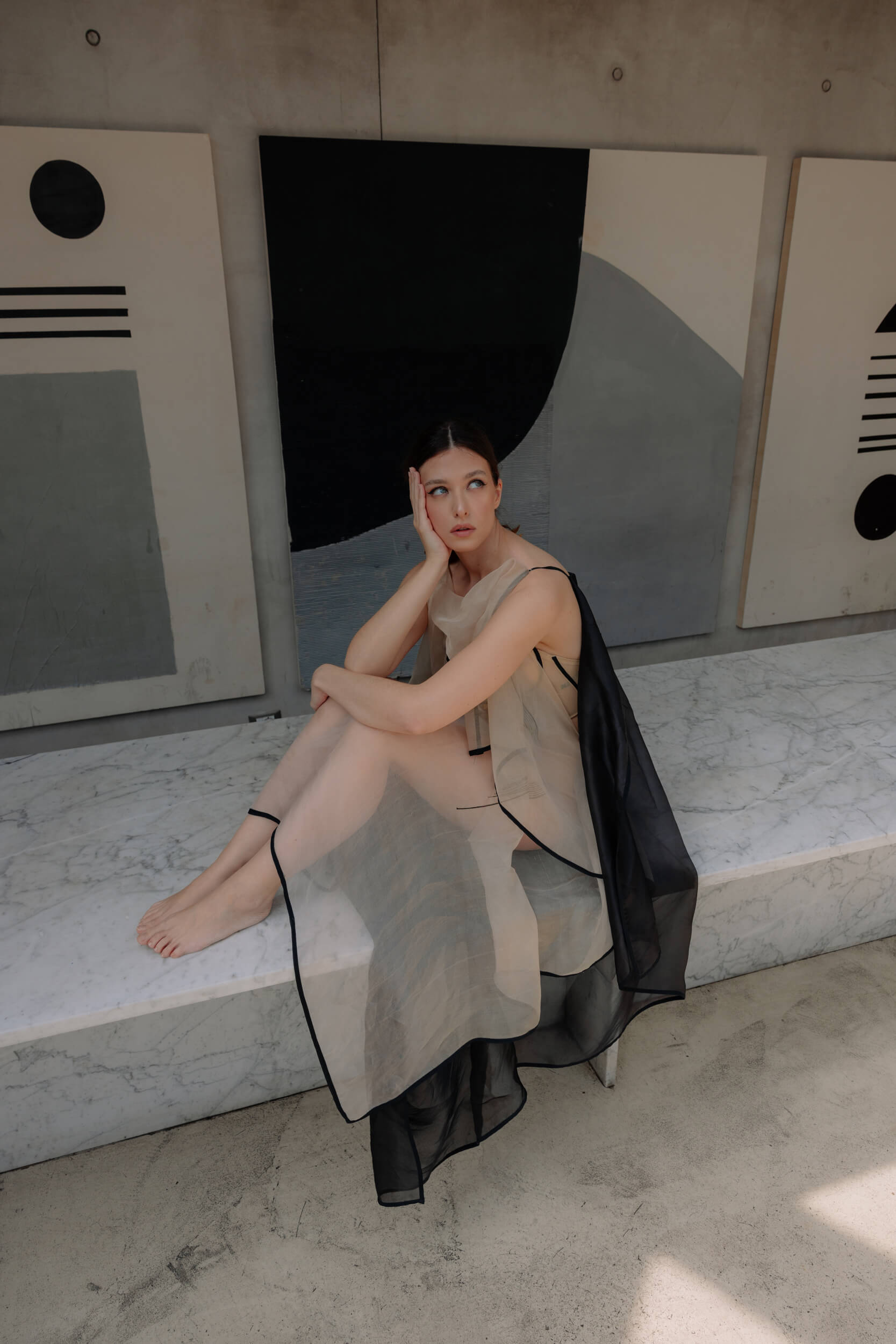
In “The Price of Family”, your character says ironically and, in hindsight, wisely: “If we really had 6 million, we wouldn’t be here counting pennies”. In “The Price of Nonna’s Inheritance”, the family decides they need to assassinate nonna Giuliana’s new boyfriend to prevent him from taking their inheritance. How do you think the concept of attachment to money develops and connects in the second chapter, where the family faces an even more surreal situation?
I think Alessandra, like the other members of her family, has an obsession with money. The family is also middle-class, so they’re not doing too badly, but there’s this widespread attachment to money in the belief that money can indeed fix everything.
But is it true that money fixes everything?
The question is somewhat the driving force behind the actions of the two children and also Christian’s character. Alessandra is very “killer”, and very determined, and what’s interesting is that she manages to understand and honestly recognize her limits, which I find very difficult—admitting you can’t do it, even if it disappoints the expectations of parents or those around you. She realizes she’s not what she pretended to be and comes to her senses, although the attachment to money always stays within her… So, the character’s three-dimensionality is also beautiful, being her a bit bad but also a bit good, a human being 100%.
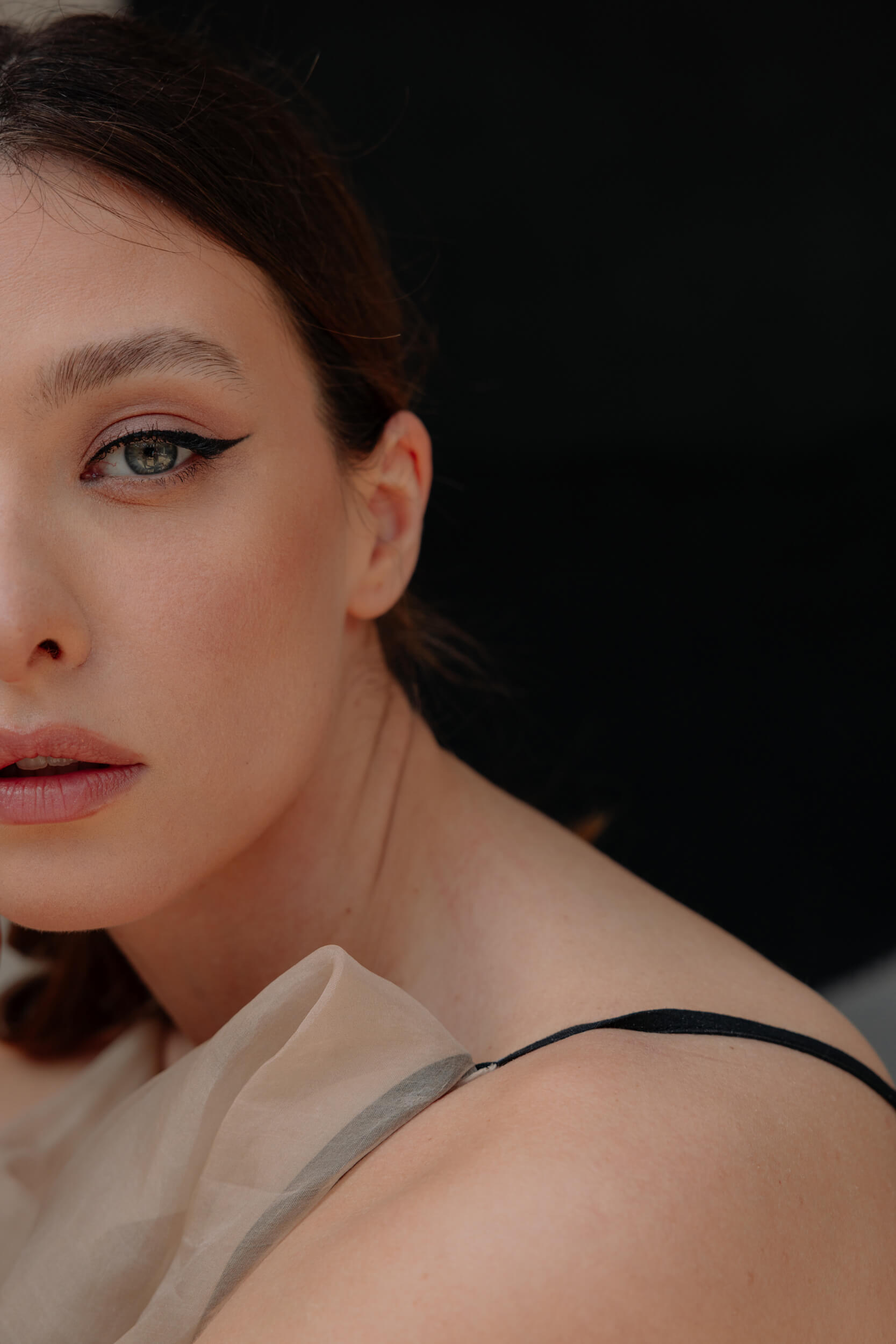
“But is it true that money fixes everything?”
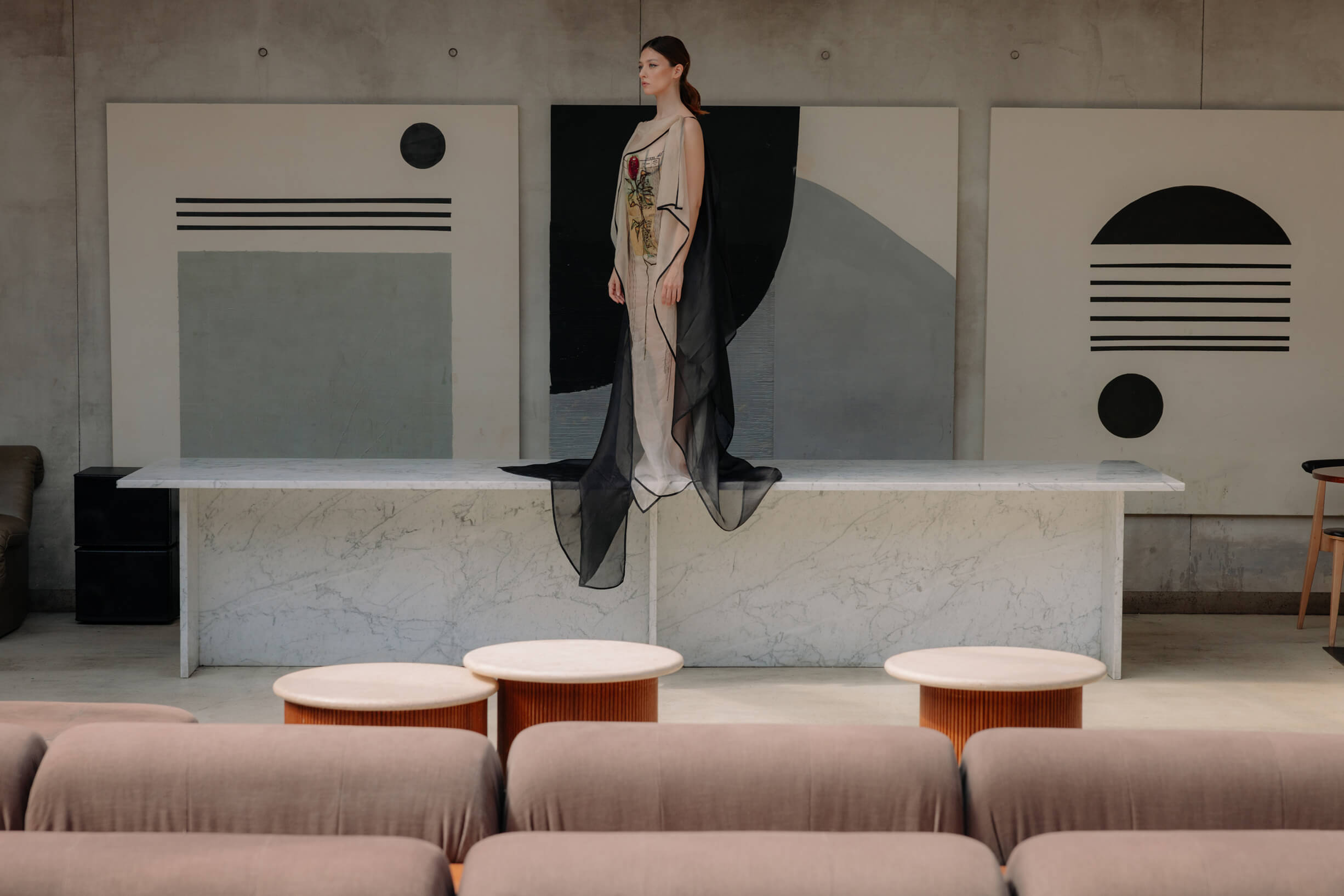
What was the most fun or memorable moment during filming in Minorca?
For me, the pool sequences.
You can imagine how “difficult” it was to shoot with Christian, Angela, and Ninni Bruschetta on set! [laughs] It was constant laughter, a party! I’m one of those who laughs a lot on set, I’m not as professional as I should sometimes [laughs].
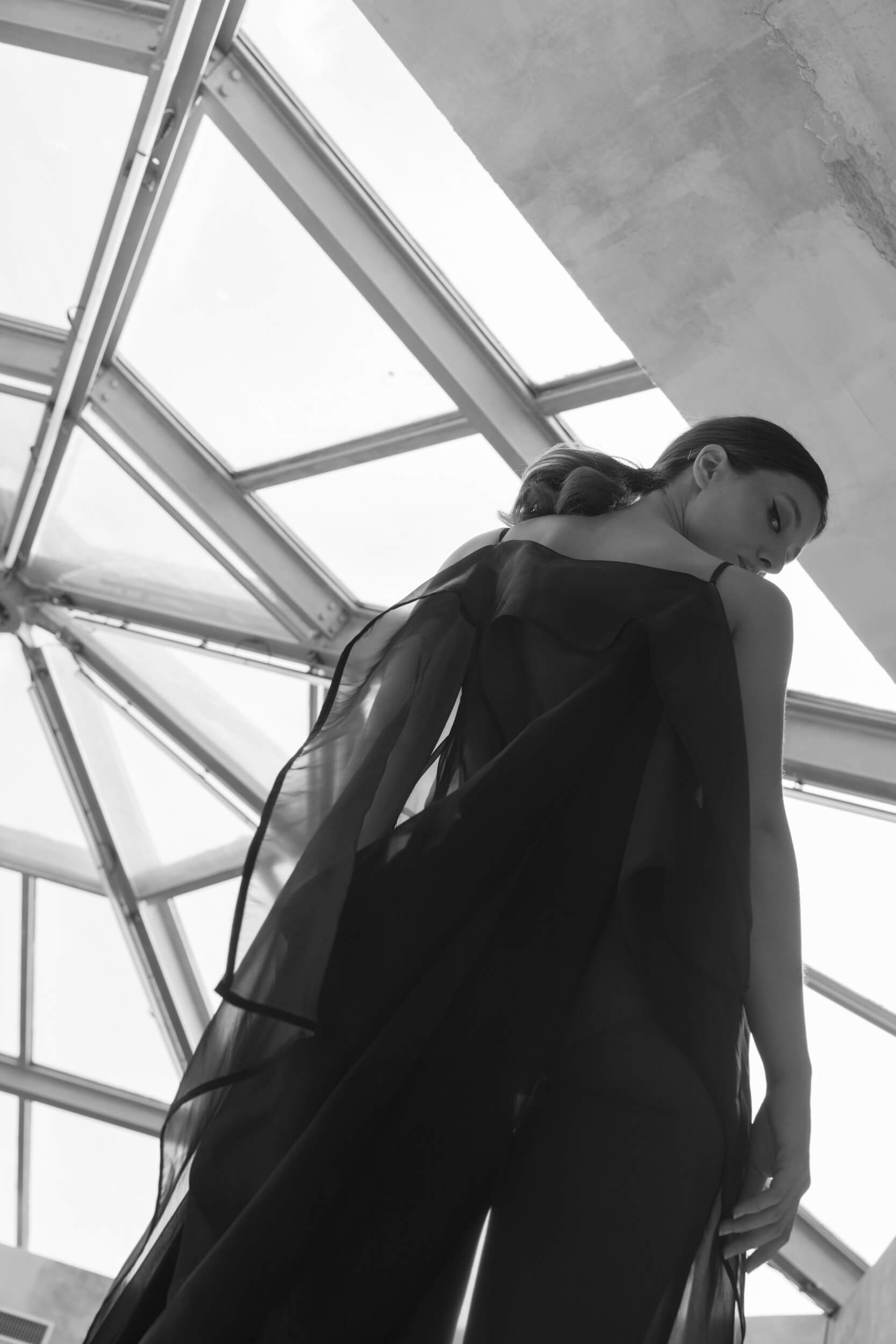
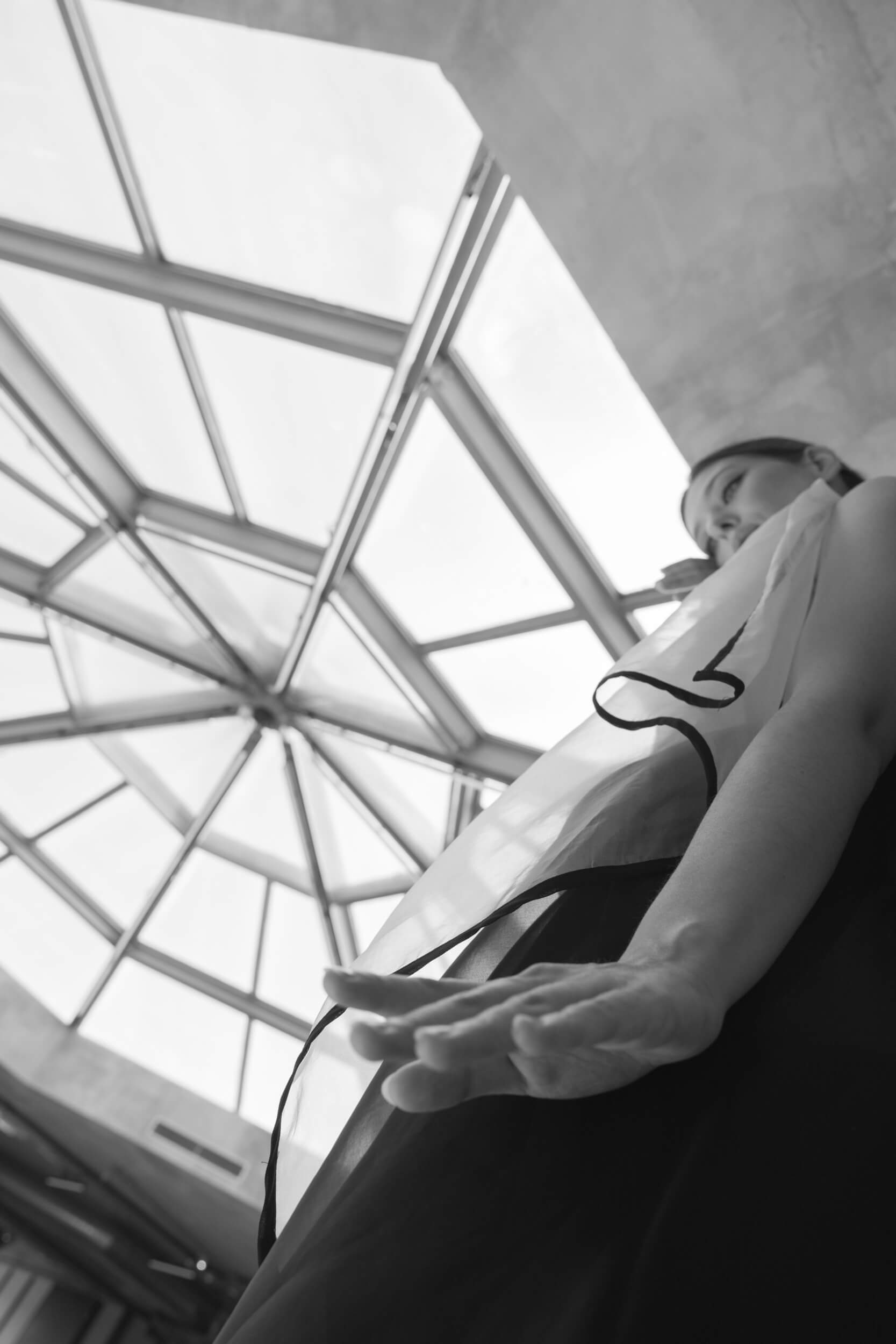
“The Price of Family” was translated into 28 languages and was a global success. What do you expect from “The Price of Nonna’s Inheritance”?
I’m making a huge effort not to expect anything, in general. I’m trying to stop having expectations for myself and my work because I realized that the more I have expectations, the more I give power to someone else over my happiness. What I hope is that the film is liked by those who want to like it; for the rest, I don’t care, also because I didn’t expect this success when it came.
I believe that if you put too much energy into a certain type of thought, it won’t work. I know we did a good job, we had fun, and I hope that comes through.
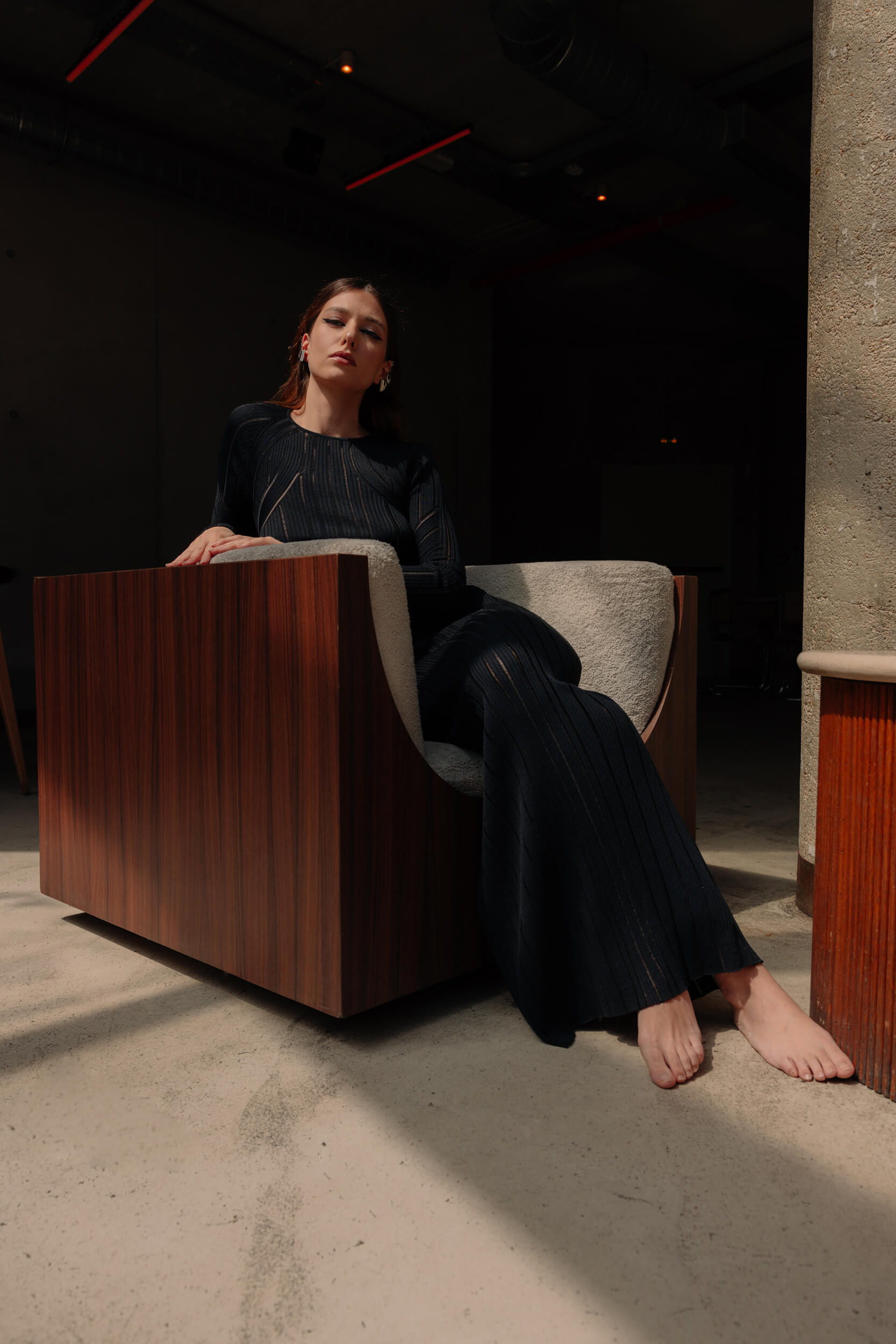
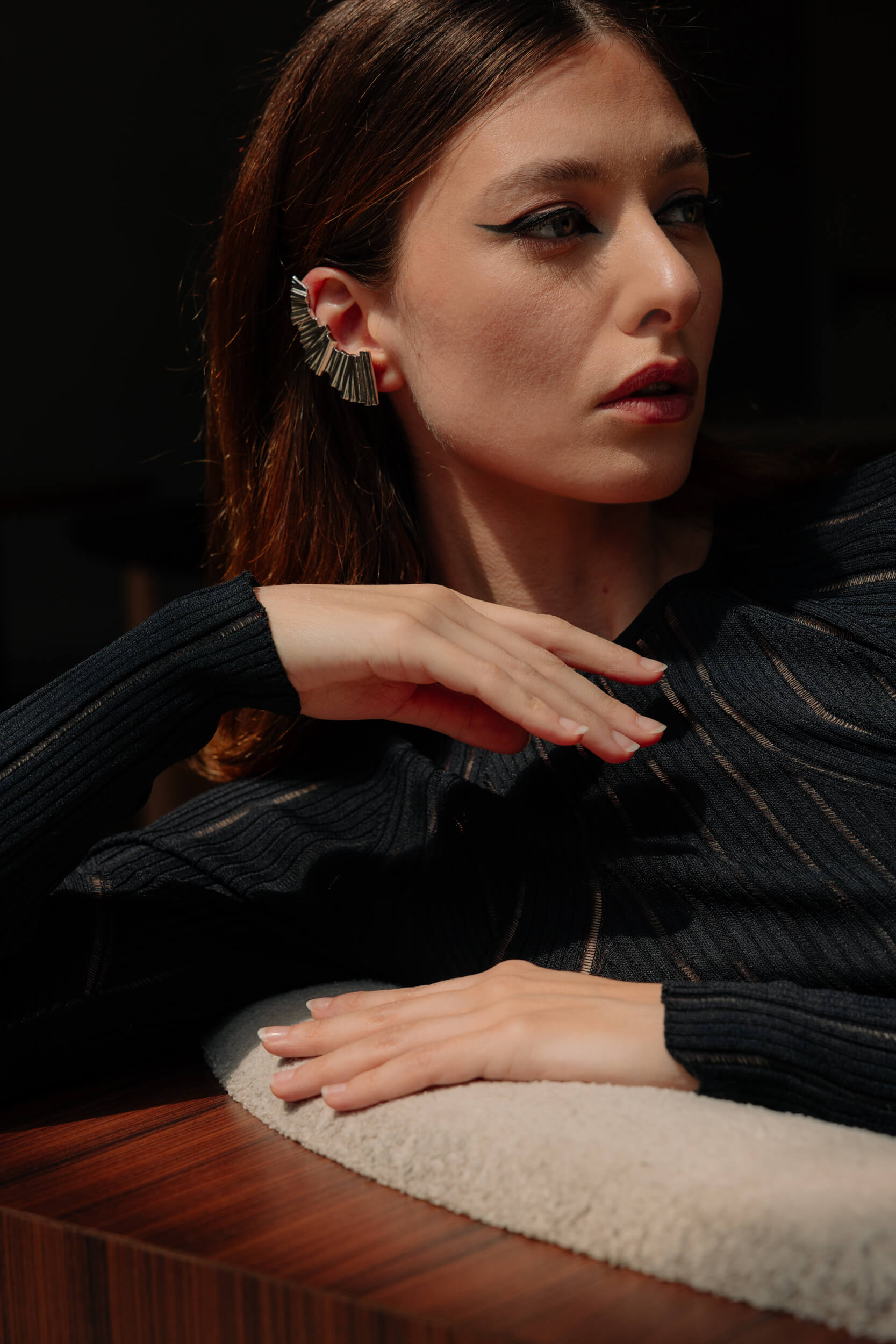
The film deals with themes such as the importance of family and mutual support, but always with a comic and “absurd” touch, making the audience sympathize, oddly enough, with the “bad guys”. How did you manage to balance this mix of comedy, dark humor, and sentimentality?
Good question. I, for example, didn’t worry much about being funny or not in a certain scene; for instance, for the pool scene we talked about earlier, Giovanni told me “freestyle”, and as an actress, in moments like that, my concern was whether Nunzio’s character was dying, so I acted out the panic, I did what I would do in a similar situation in real life. So, I think that when you really believe in what you’re saying in a scene, the balance you talk about is somewhat irrational, in the sense that I believe in every scene I do. If Alessandra is remorseful or heartbroken, for example, when the mother says certain things to her at the table, I react honestly, as if my mother were hurting me. So, I act as a bridge between myself and my character, even if she reacts differently from me, always with extreme honesty towards the character and myself.
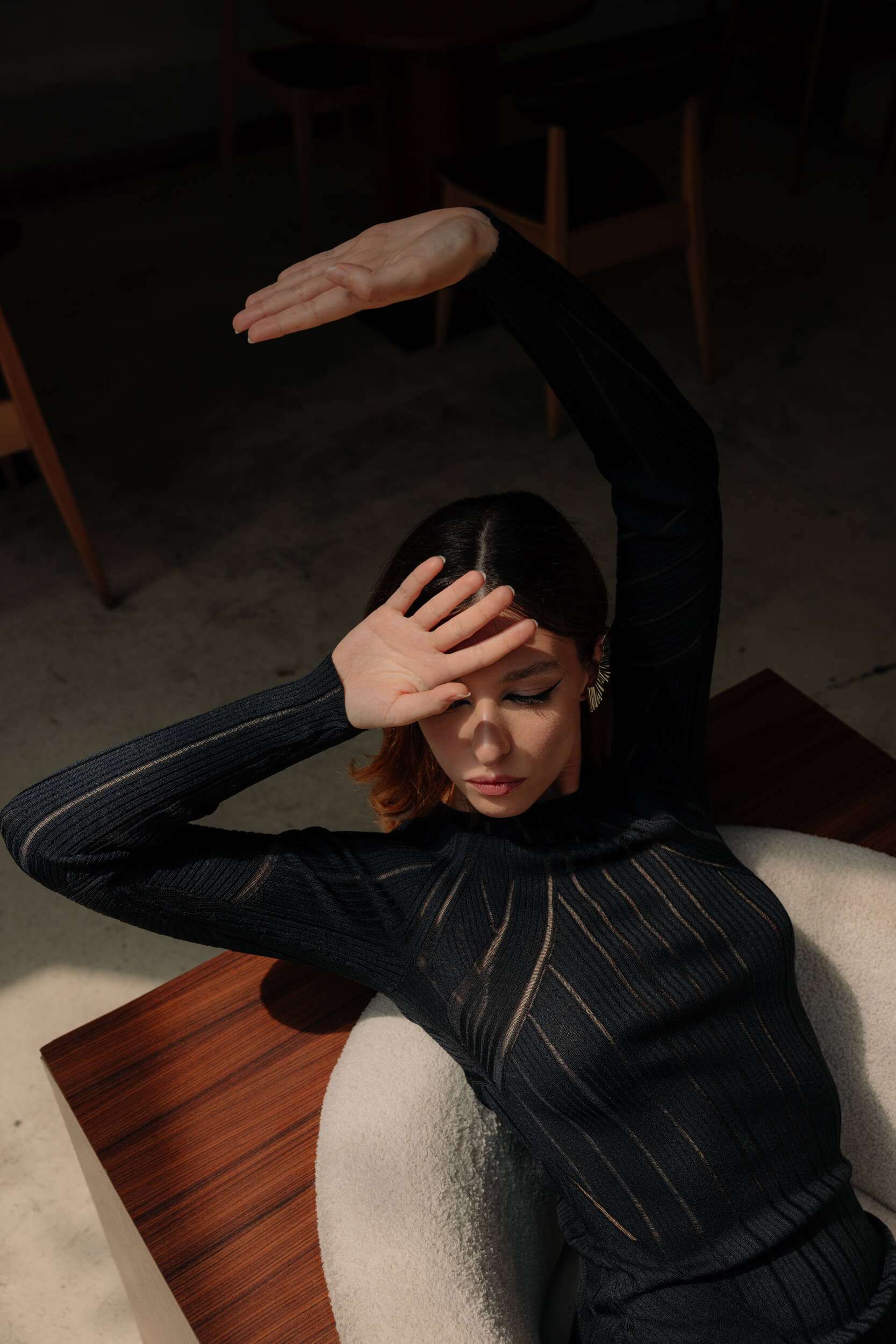
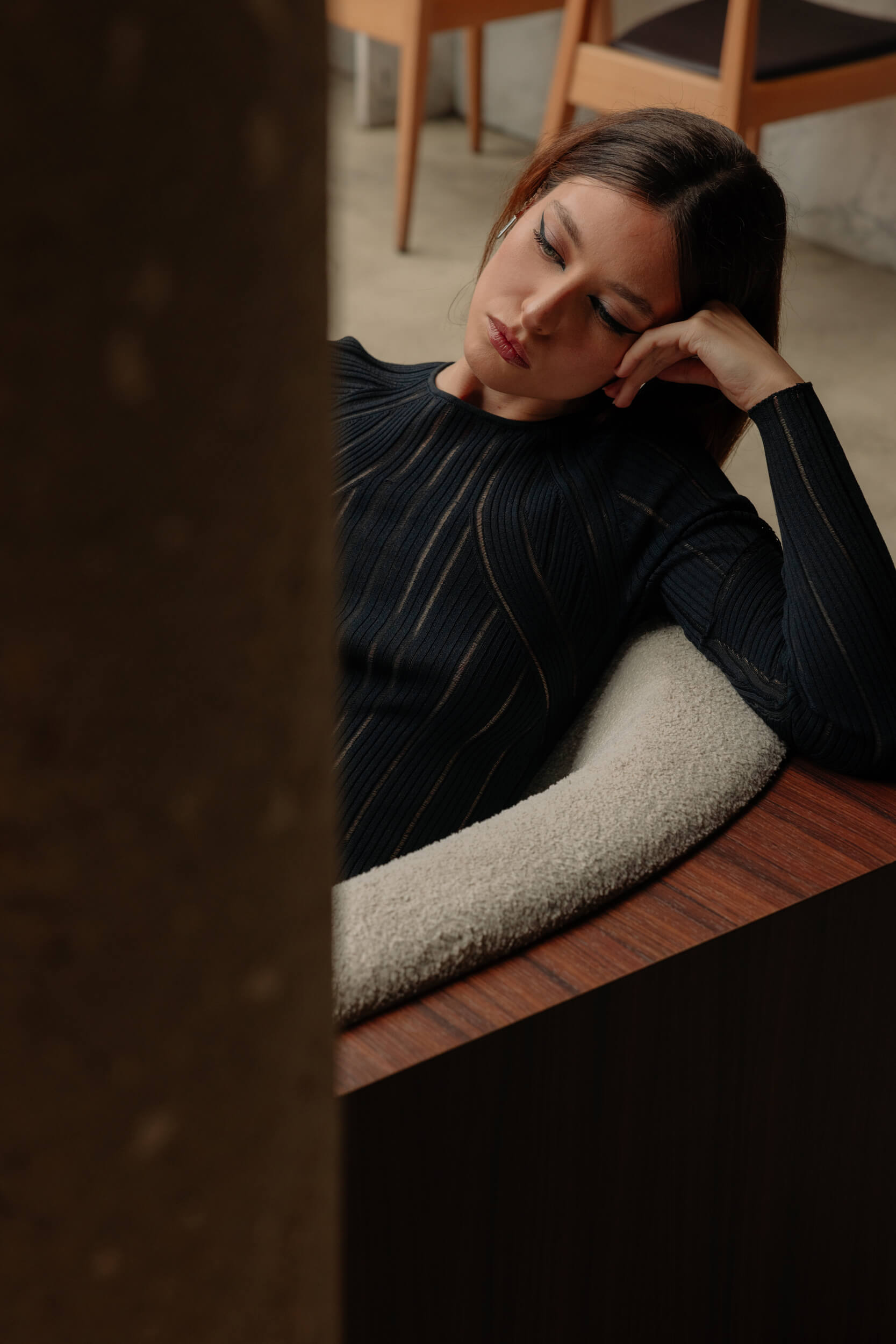
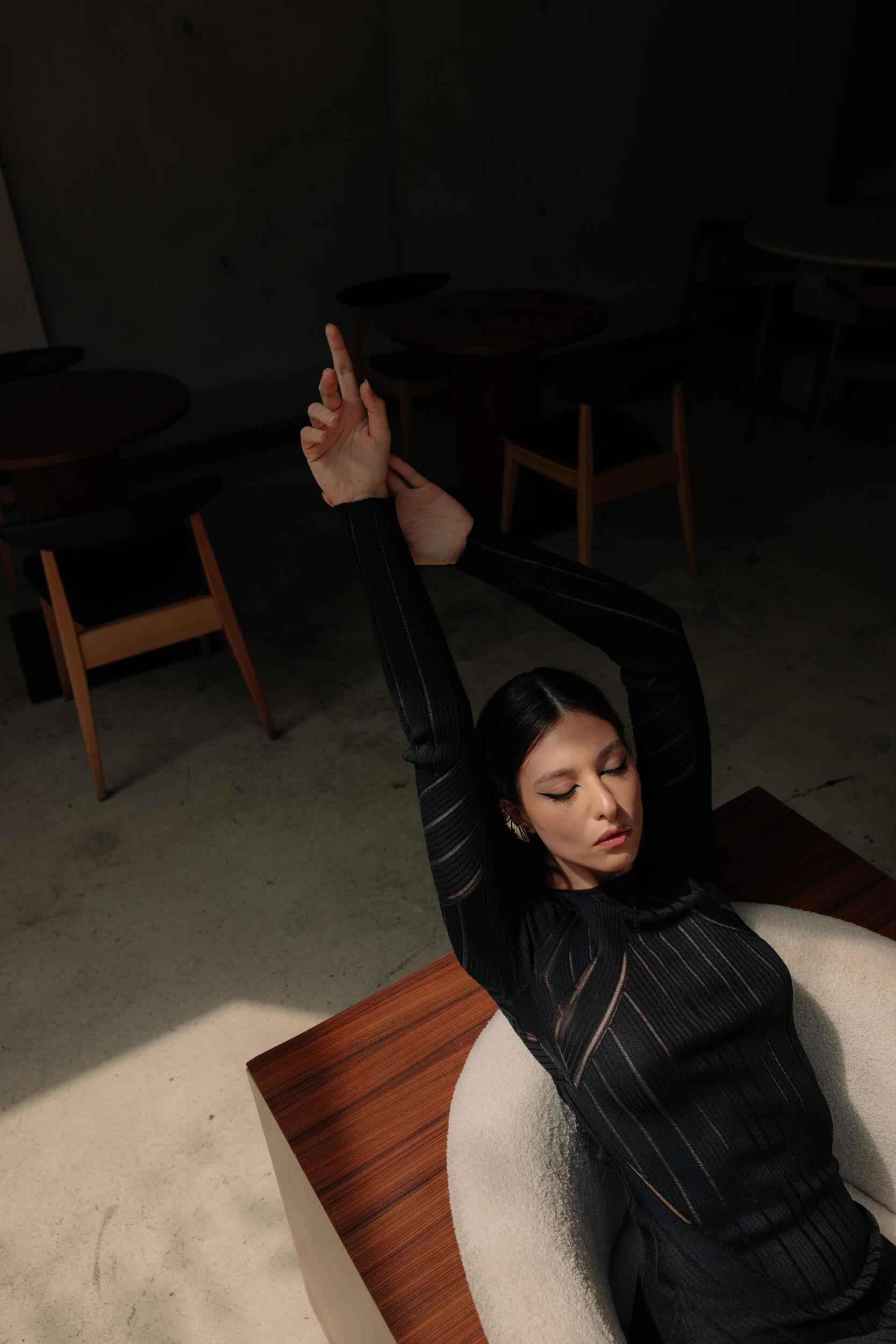
Trust, especially in family relationships, is a central theme of the story. How important is trust to you, both in life and on set?
I’m a person who has quite a few trust issues, in general. Fortunately, in my work, when I take on a role, I make a pact of trust with myself, but especially with the director: the director has all of me, my acting ability at 360°, and I entrust it to them and see what happens. Maybe, on set, when I mentally repeat these things, it’s the moment when I can trust my scene partners the most. For example, for this film, I relied a lot on Claudio Colica; I have immense respect for him, from the first film, and I consider myself lucky to have him by my side because he supports you a lot, even if he doesn’t realize it. In life, I try to trust, but I’m a Virgo, so it’s not easy… [laughs].
I have three or four “lifelong” friends, I’m very selective in my relationships because I tend to trust little.
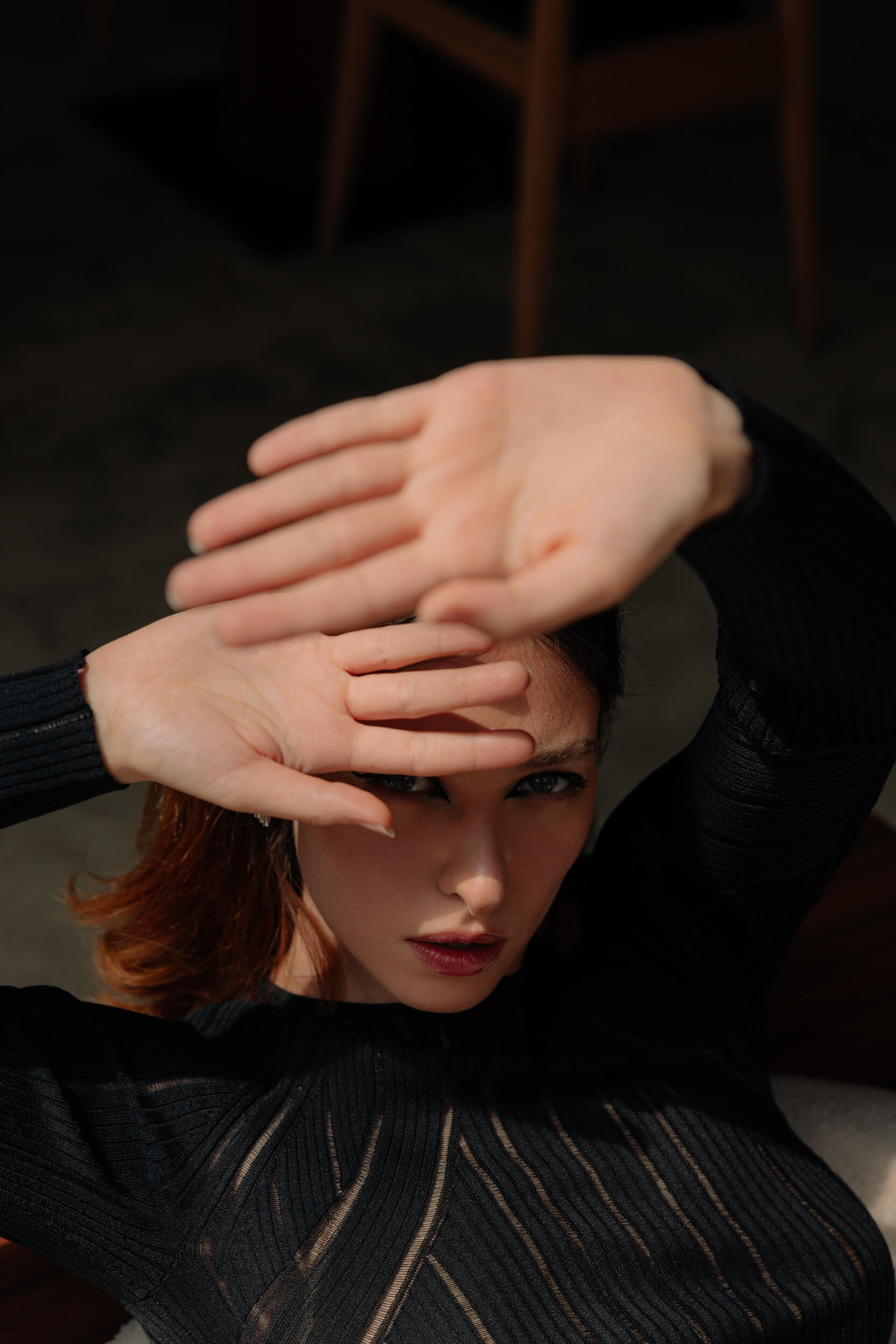
“…the director has all of me, my acting ability at 360°, and I entrust it to them and see what happens.”
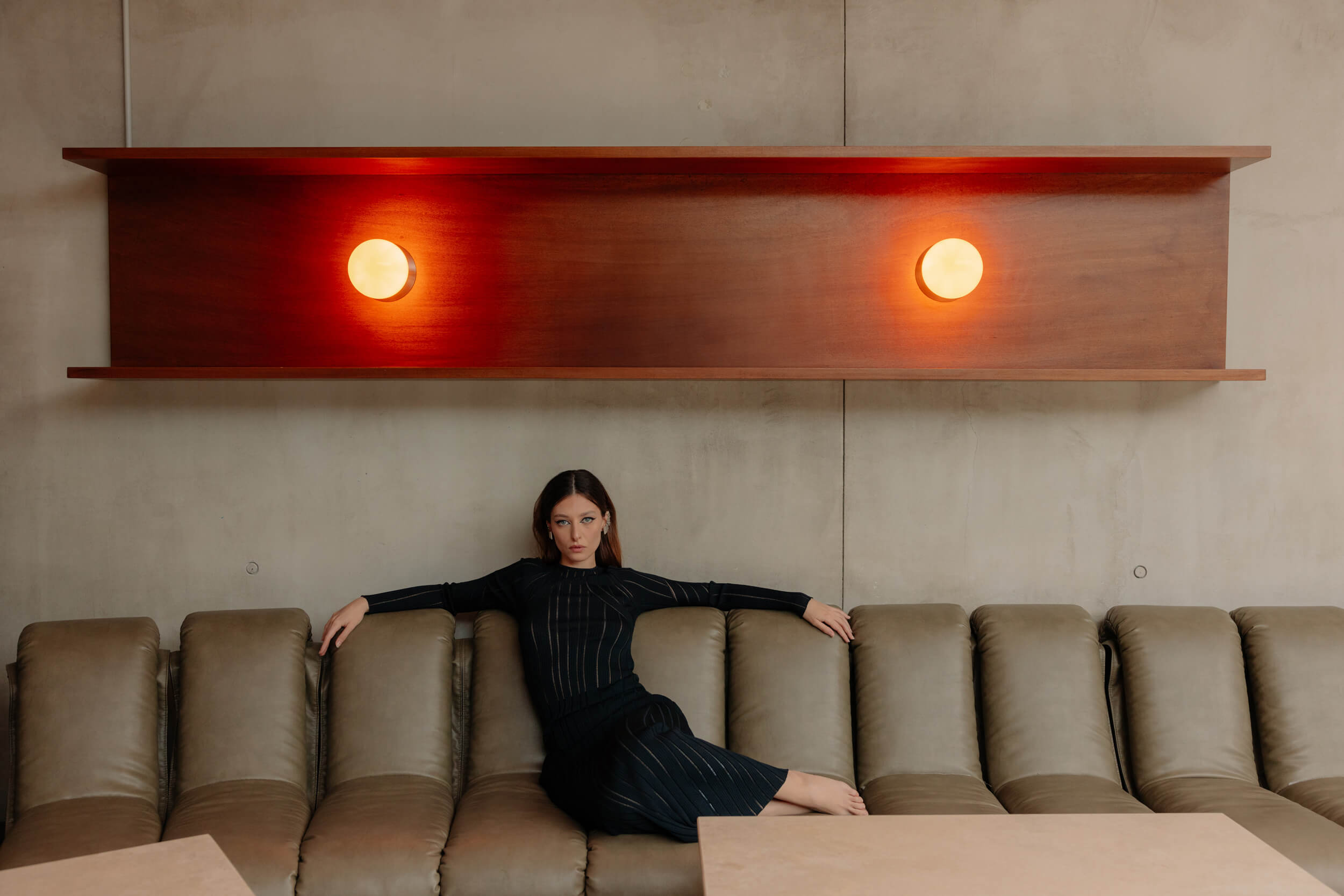
What do you think the audience will appreciate most in “The Price of Nonna’s Inheritance”?
In my opinion, cinema, like art and acting in general, is extremely subjective, so everyone will find things they like or dislike. What I hope is that the film is liked and that it is acknowledged that we put our hearts into it because we are very united. So, this film is a gift we made for ourselves, and I hope it’s perceived that way.
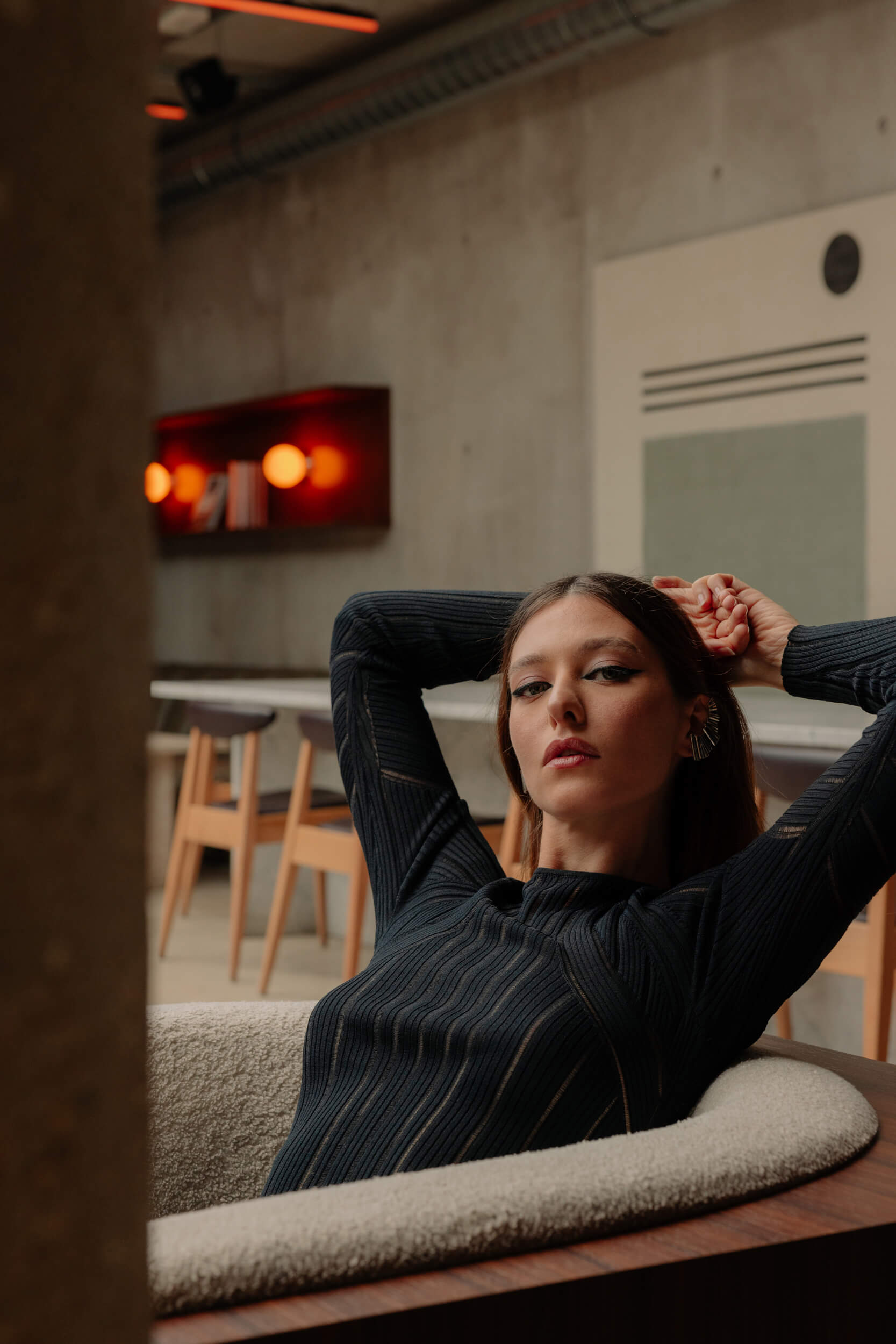
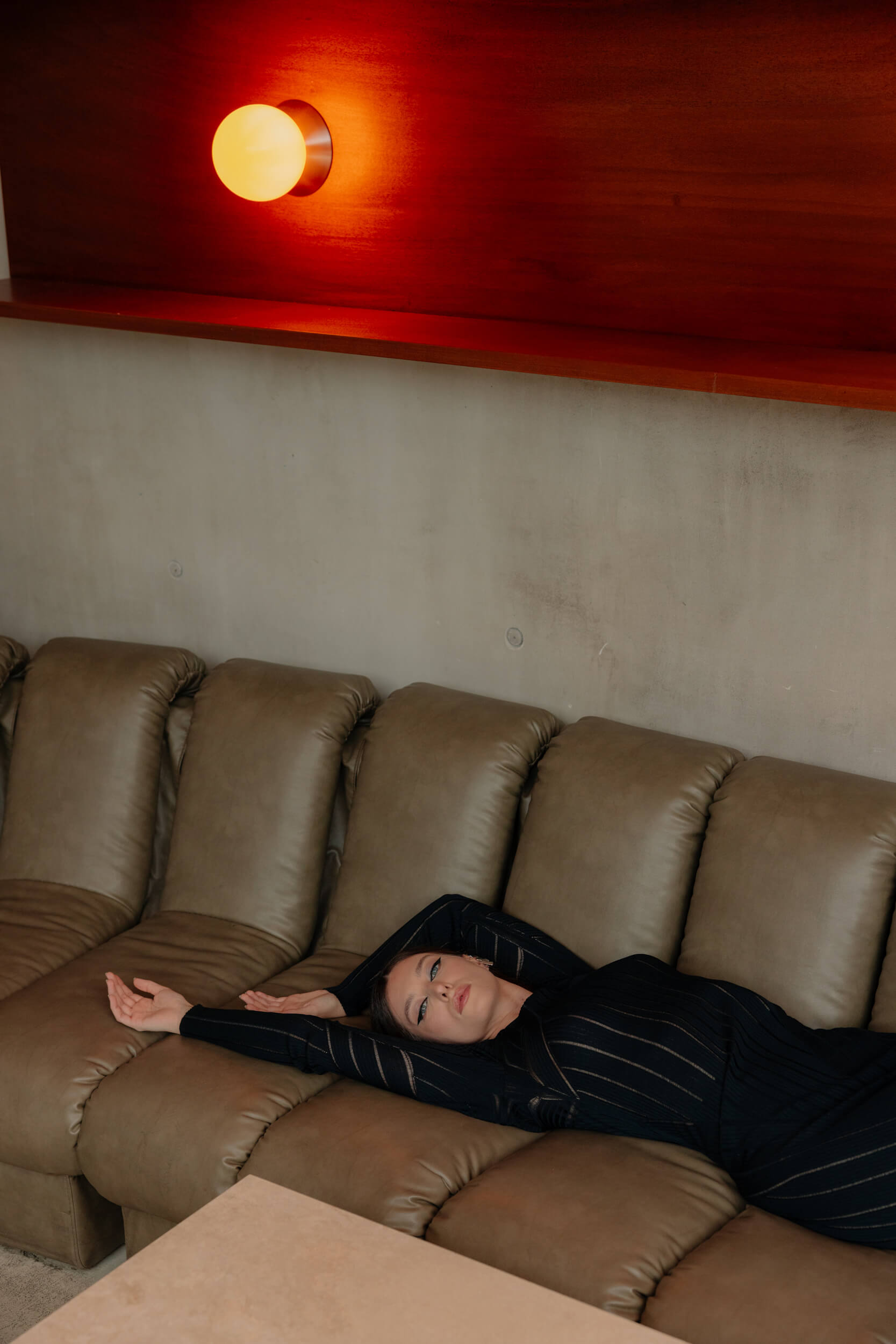
How would you describe this film in one word?
“Bold”.
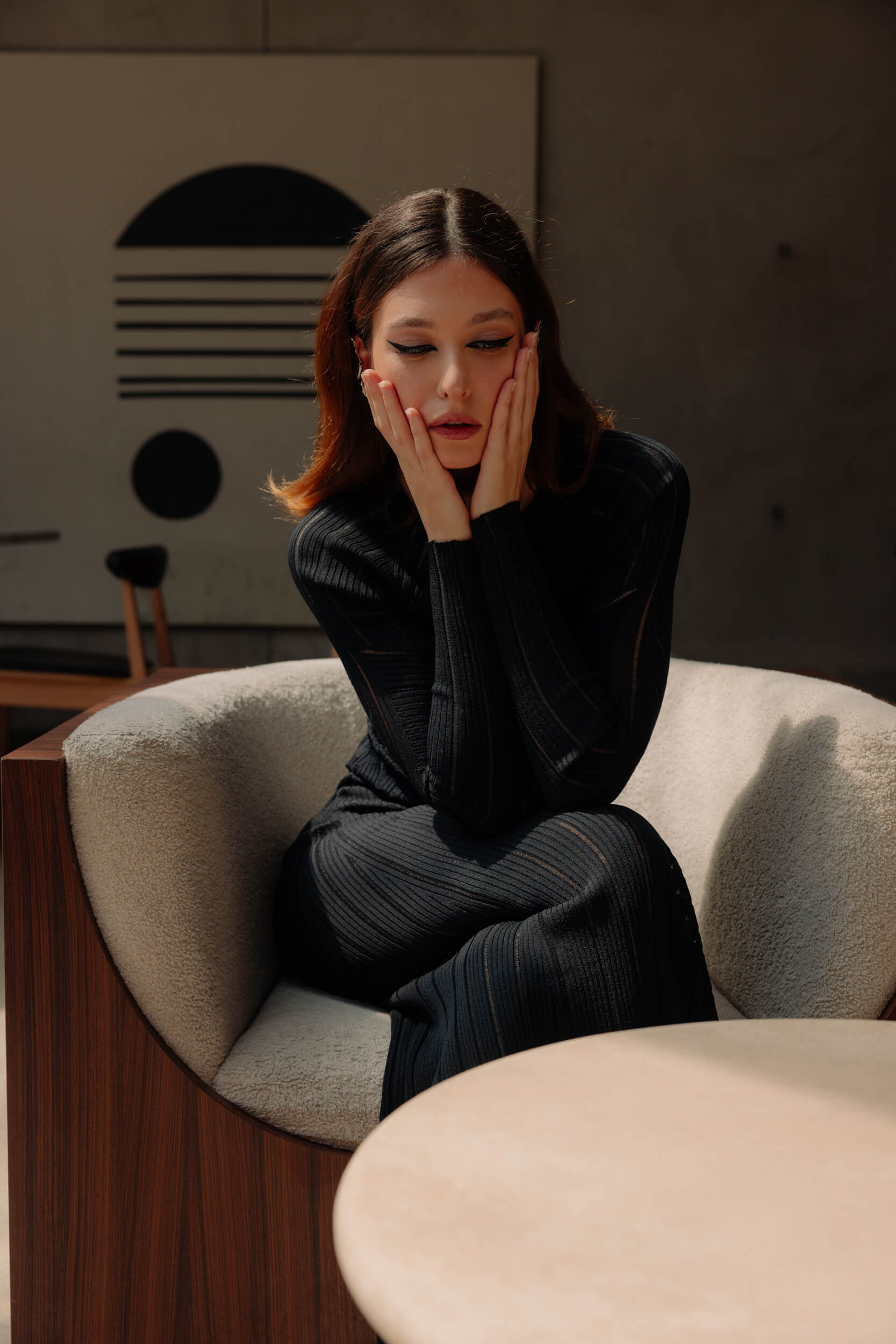
What are your future projects? Do you have any other films or projects coming up that you can share with us?
I don’t know the release date yet, but I participated in a Netflix series called “Inganno” by Pappi Corsicato, with Monica Guerritore as the protagonist; I play her daughter.
An epic fail on set?
Where do I start… [laughs].
First of all, as I told you, I’m someone who laughs a lot when I can, maybe the worst time was on the set of “Più forti del destino”, my first lead role. Once, during filming, I had to say a simple line like “Libero is not a terrorist”: we spent maybe a good half hour on that line because I was completely flustered and stammering a lot, which happens to me when I’m really very nervous. At one point, Paolo Sassanelli had me doing articulation exercises [laughs]. I don’t know how I found the courage to come back on set the next day!
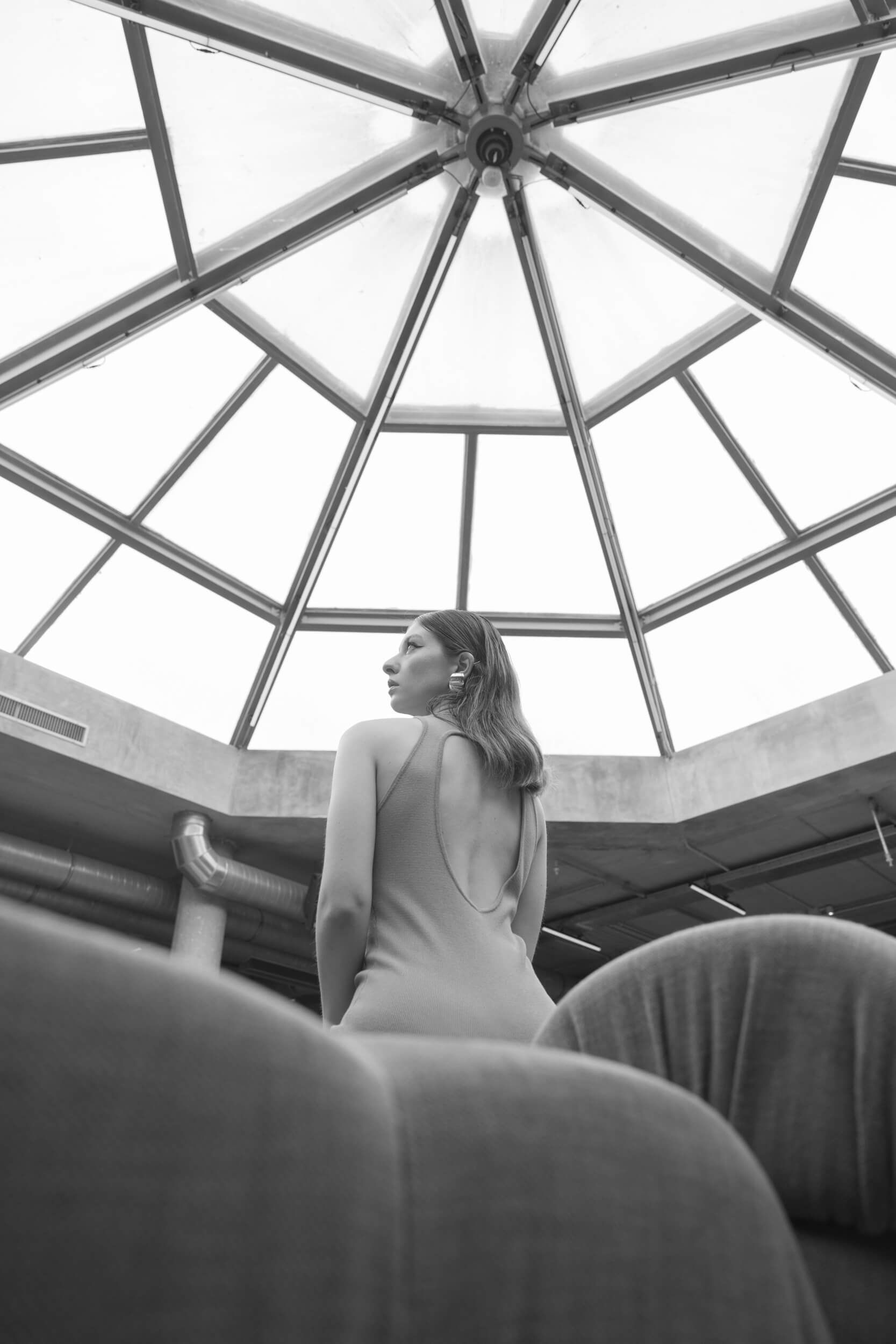
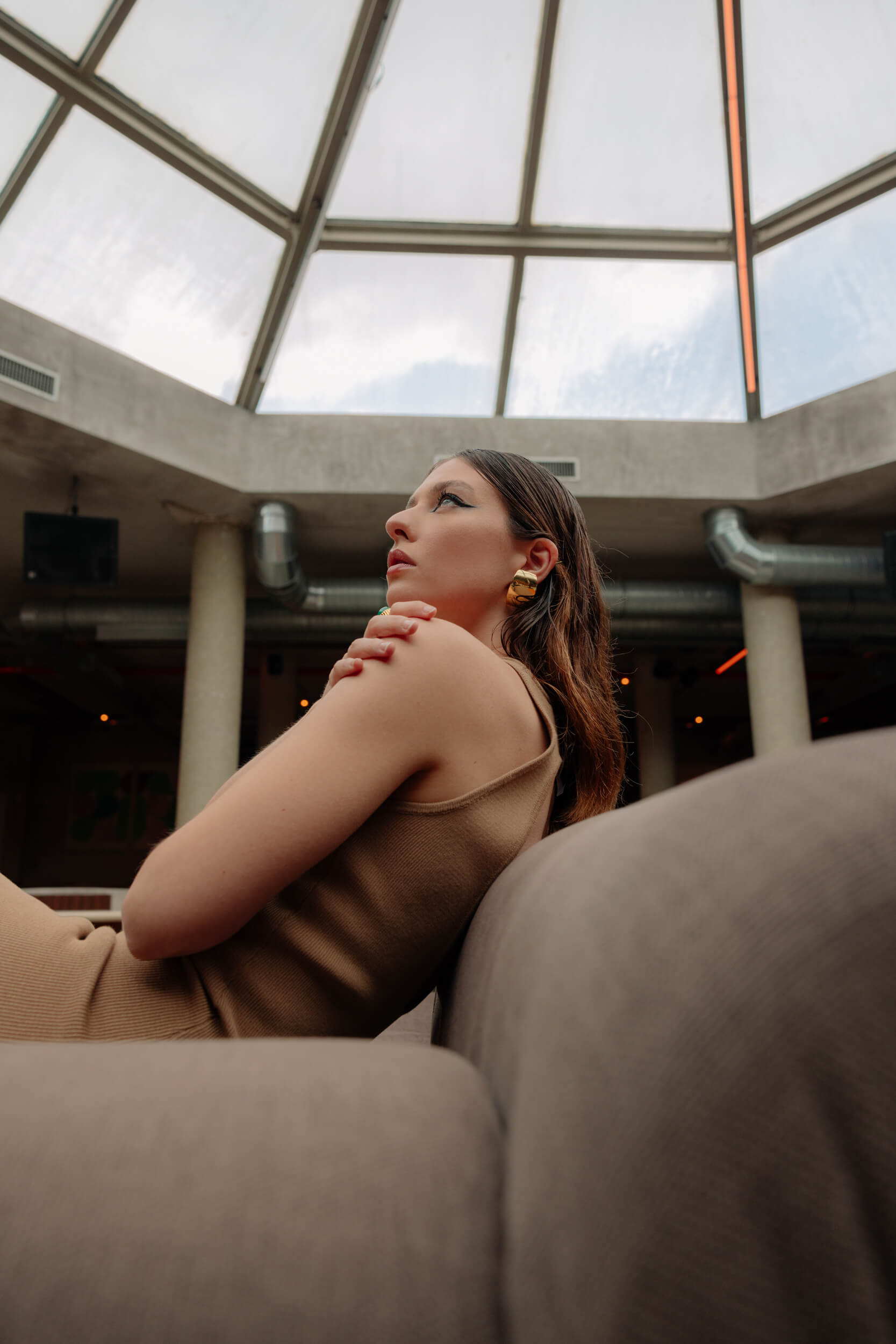
Your must-have on set?
Actually, I don’t have one. Let’s say my must-have is preparation, meaning I don’t go on set unless I’m very prepared for what needs to happen that day, both emotionally and in terms of the script. I always try to arrive on set as open and ready as possible, willing to experiment and create beautiful things with the people I’m on scene with. So, my must-have on set is being present.
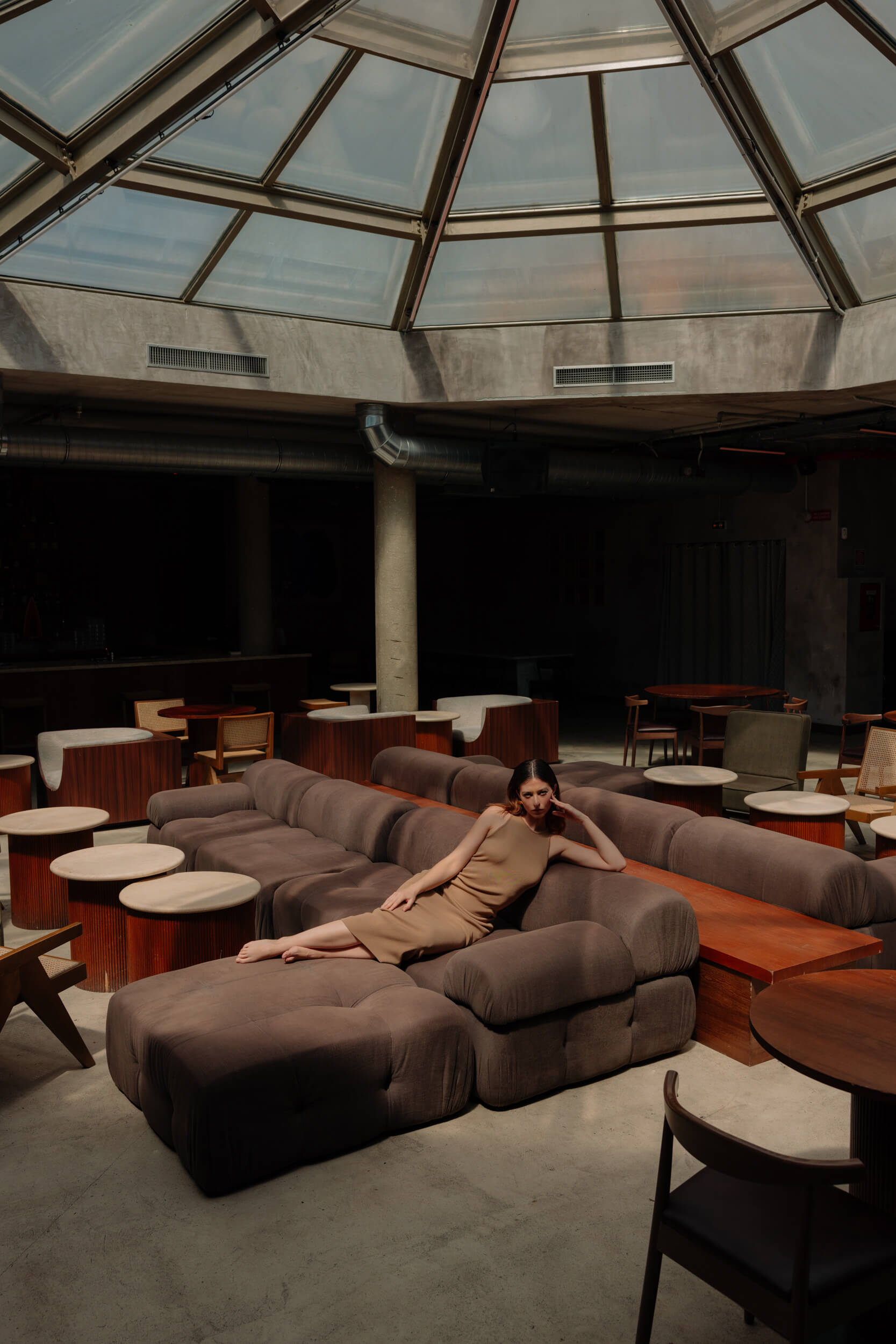
“Being present”
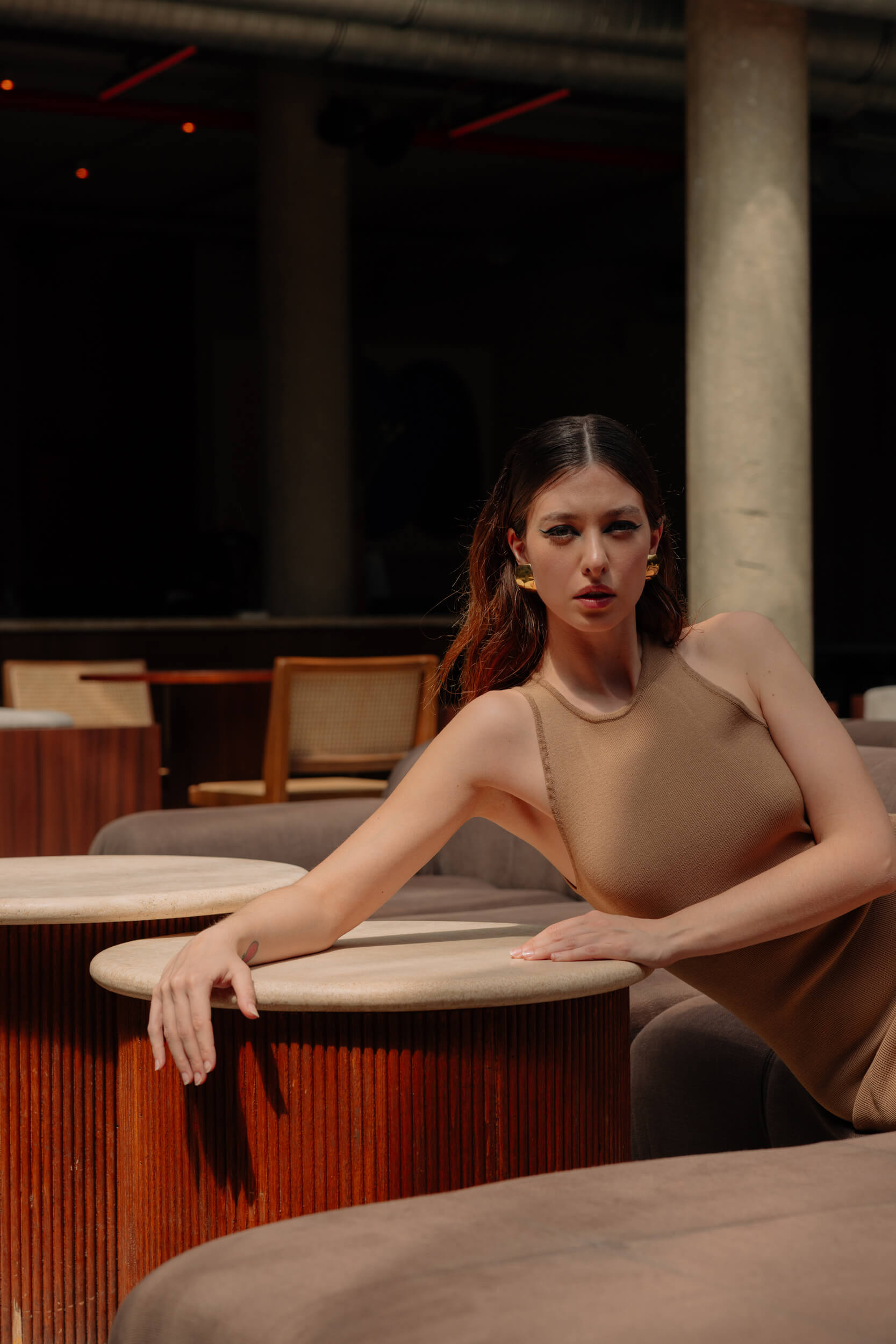
What has been your greatest act of courage?
I’m not someone who does “heroic actions”, in general. Maybe the most courageous thing I’ve ever managed to do is this job. In my job, just like yours, but it applies to anyone with a goal, a dream, or a vocation, who invests their whole life in that vocation without a plan B, every day is an act of courage. We live in a society where you can give up at any moment and say: “Why am I doing this? It’s better to find something more concrete and secure”. But hats off to those who challenge themselves to achieve a goal.
Especially in this rather complex period, I give myself a “pat pat” on the back and tell myself that this is the most courageous thing I do.
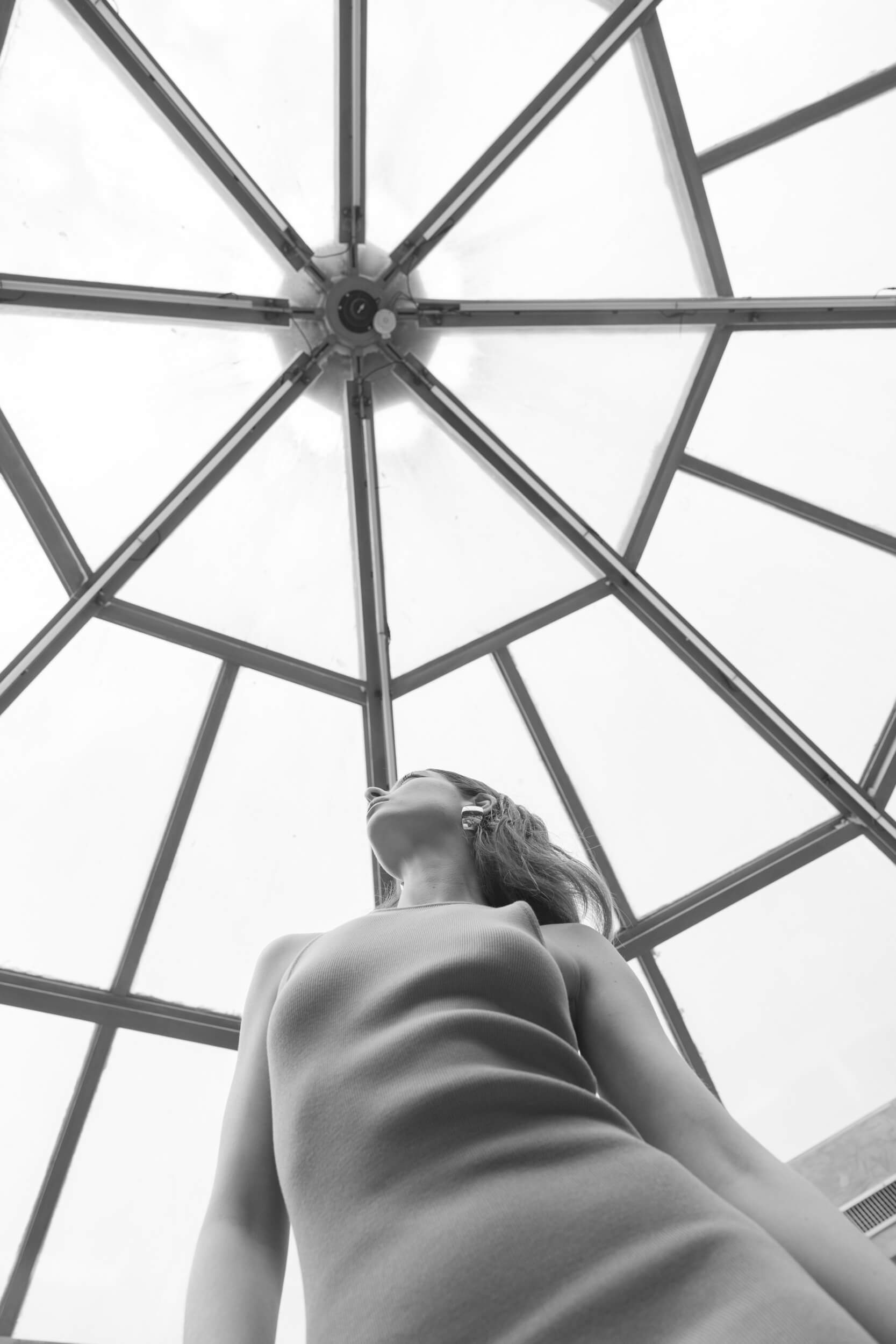
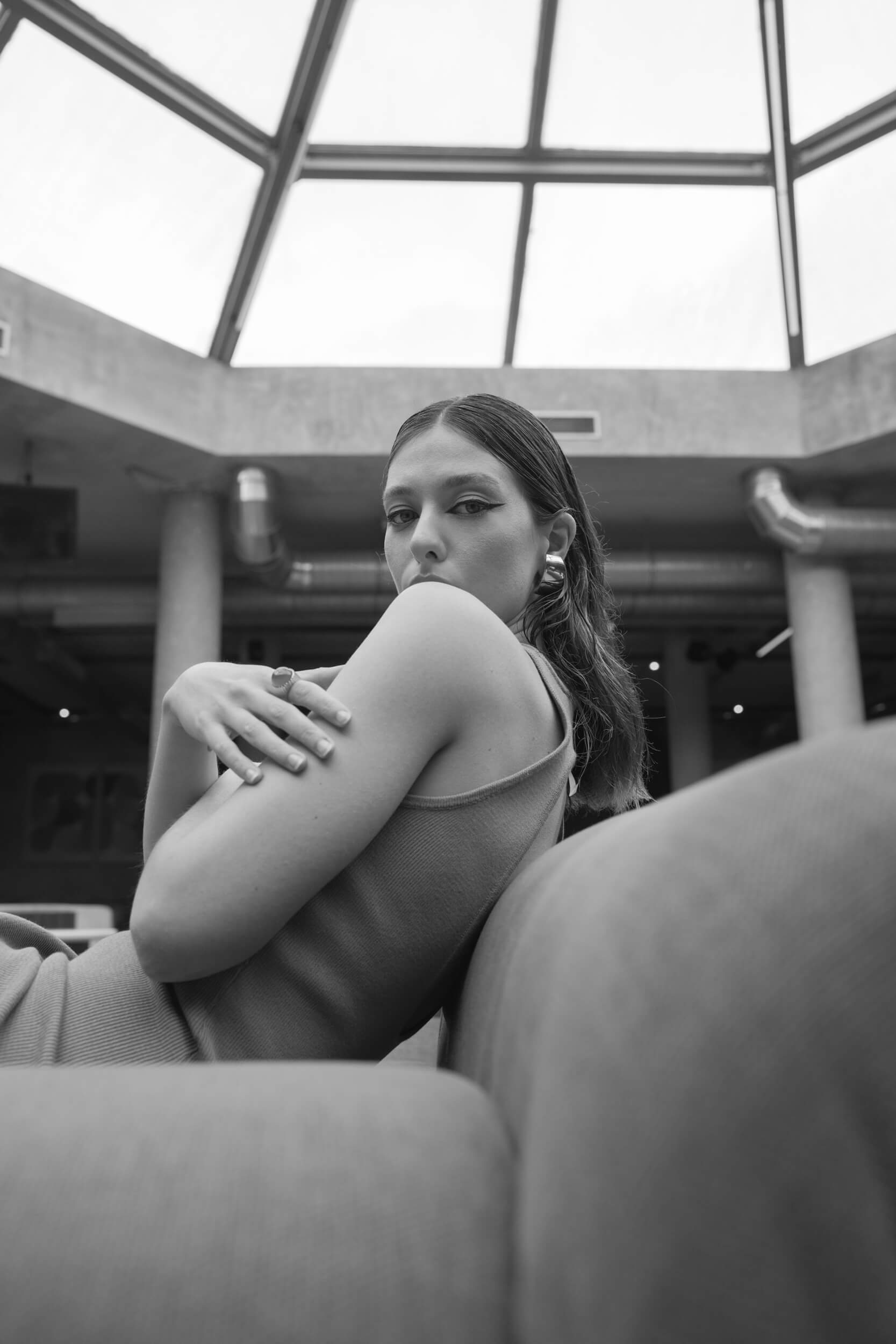
Your last act of rebellion?
I’m rebelling against myself and my insecurities. I’m rebelling against my giant impostor syndrome, against my huge fear that everything will end at any moment, telling myself to stop devaluing myself and that I can do it. I don’t know about you, but I am a great self-devaluer, but we need to stop because all we do is attract what we negatively think about ourselves.
My psychotherapist often talks to me about “self-fulfilling prophecies”: the more we tell ourselves that things will not go well, the more likely it is that they won’t go well for real.
Exactly. More than anything, if you are a person used to not having things easy, over the years you settle into your comfort zone of “no”, of “things always go badly”, and going to the other side, convincing yourself that instead “things go well” is complicated because it means you have to open up to the possibility of being hurt…
While if we convince ourselves that “things go badly”, it is a form of self-defense: we think that by starting negative, the negative outcome will hurt us less.
Totally. But I rebel against this mechanism.
“I don’t know about you, but I am a great self-devaluer, but we need to stop because all we do is attract what we negatively think about ourselves.”
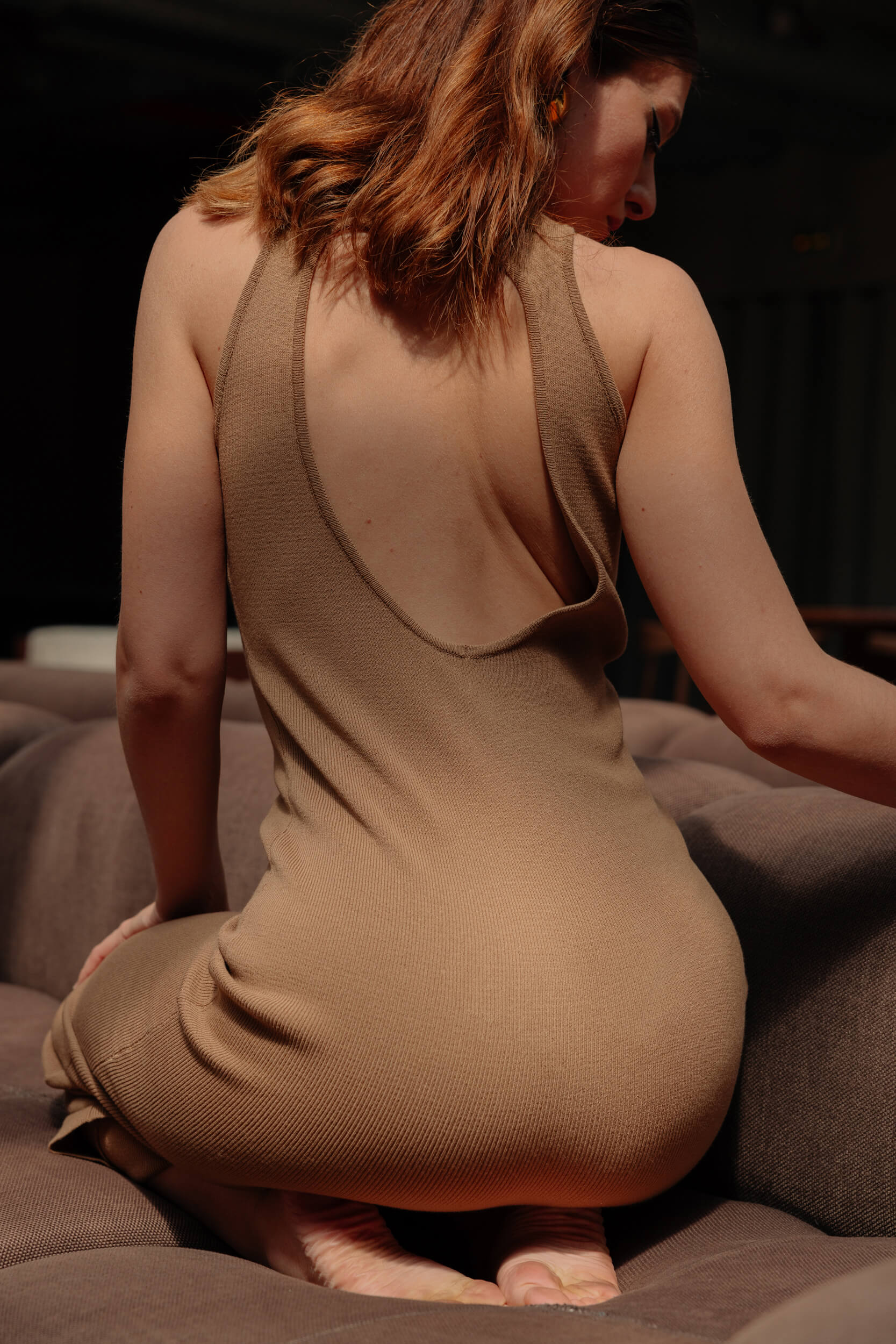
What is your greatest fear?
What I just mentioned, not being able to continue doing this job. It’s my biggest nightmare, the fear of failure.
You actors, usually by identifying with so many different characters, always explore new sides of yourselves, of human beings in general. What was the last thing you learned about yourself thanks to your work?
For example, the character I play in “Inganno” has a very complex relationship with her own image, which is something I totally relate to. On the positive side, she maybe gave me a bit of fun and light-heartedness in saying, “Well, in the end, who cares if you take a photo of yourself” and things like that, in relation to the fact that especially we women are convinced that we always have to be hyper-professional, all composed, and we can’t afford to show more childish and playful sides because we risk being seen as foolish. Instead, you know what, sometimes it’s perfectly fine to be silly.
The last thing or person that made you smile?
Last night, after the photocall for “The Price of Nonna’s Inheritance”, I was having dinner and I made a video call with my best friends from childhood. One of them, a very close friend of mine, recently had a baby girl, Bianca, and last night while we were on the video call, Bianca had to go to sleep, so we sang “Un elefante si dondolava” (an Italian song for children) to make her fall asleep. This made me smile.
By the way, still on the video call, Bianca said something similar to “Dharma” for the first time, so I was the first aunt to be named!
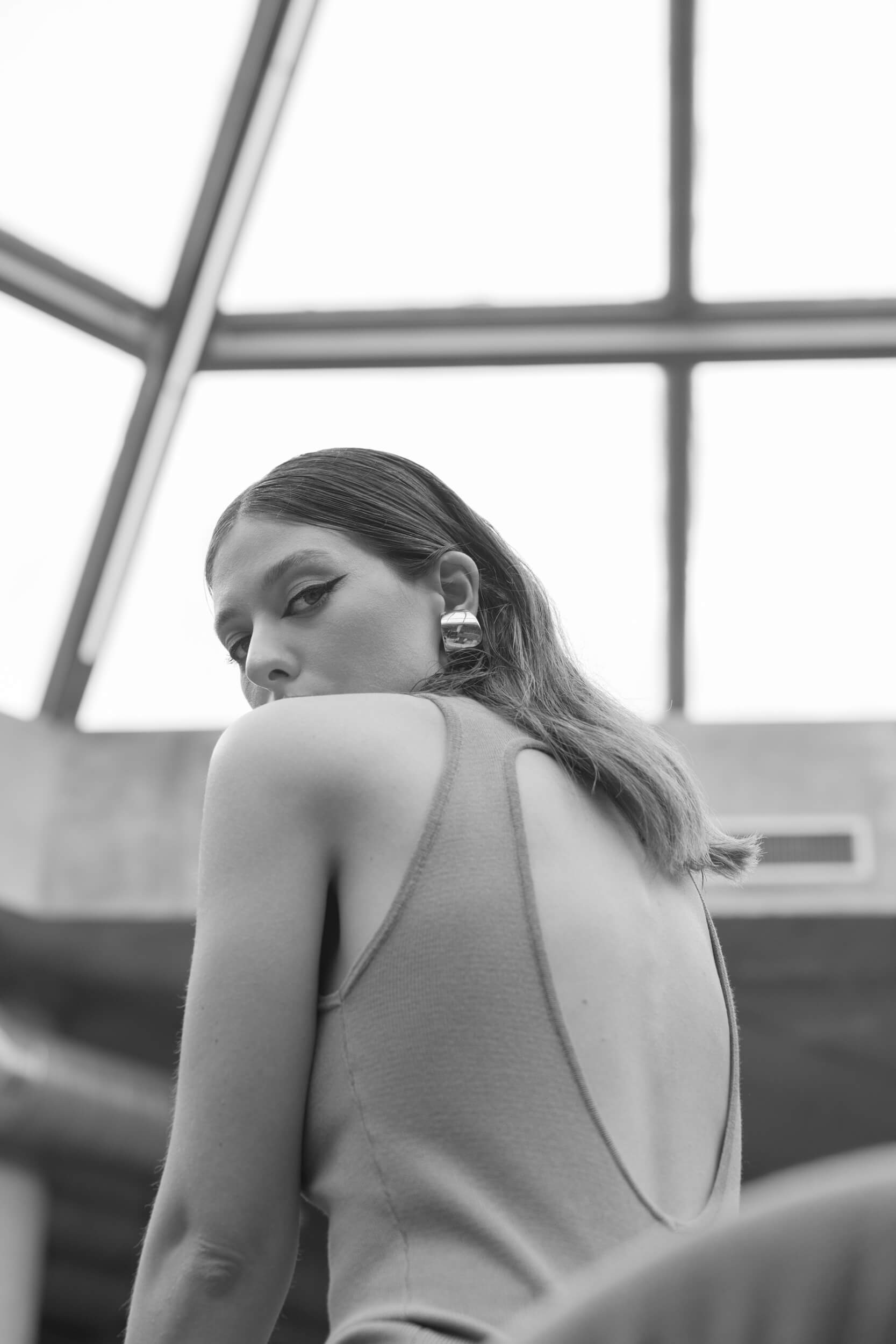
What is home to you?
Geographically, home to me is the town where I grew up, Manziana, where my mom still lives.
Broadly speaking, I don’t believe that family is just your blood family: I feel at home with my friend Vittoria, and with my actor friends. Home is where you can take off your mask, home is the people with whom you feel free to do so.
What does it mean to you to feel comfortable in your own skin?
What beautiful questions! You’re making me want to cry [laughs].
It means accepting yourself despite your limitations, small and large failures, liking yourself, and being happy. I realize that I am extremely privileged as a white Western European woman, so having these conversations is complex; within the immense luck that I acknowledge I have, I think that feeling comfortable in your own skin means accepting yourself with all the difficulties. Since it’s so complicated, people should be allowed to take their own paths to acceptance, free from any kind of imposition.
Your happy place?
I would say Manziana. It’s a very small town near Lake Bracciano and when I’m burnt out, that’s where I go. When I was little, I remember escaping from Manziana, I hated coming from a small town, it made me feel inferior, and not interesting enough. Now, however, the more I go on, the more I realize how lucky I am to be able to literally escape from my routine and go to a place where there’s the sea, the lake, the woods, there are animals. I’m extremely grateful to my mother for moving us there when we were little.
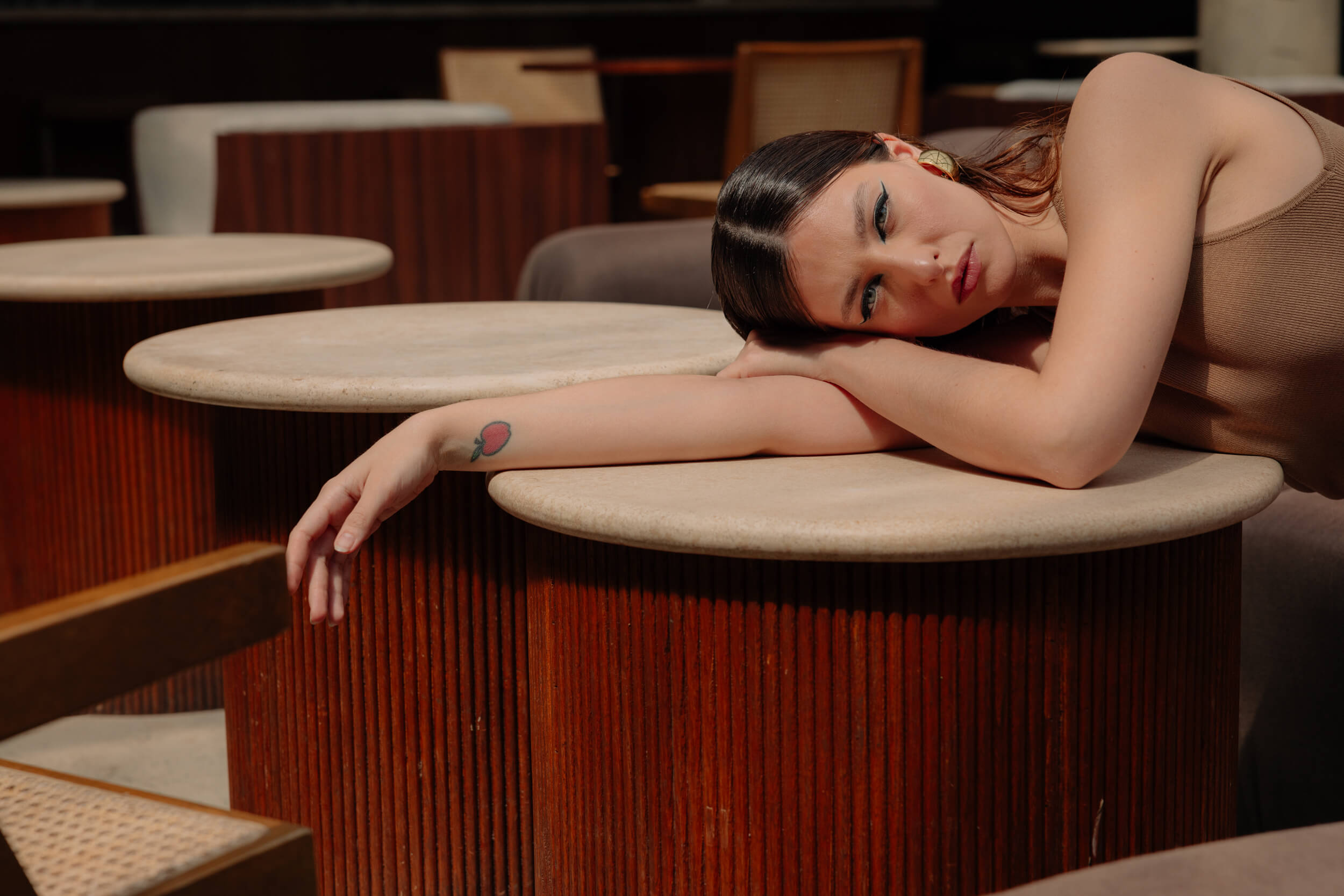
Photos and Video by Johnny Carrano.
Makeup & Hair by Micaela Ingrassia.
Styling by Sara Castelli Gattinara.
Assistant Styling Ginevra Cipolloni.
Location Manager Luisa Berio.
Thanks to Naos Restaurant.
Thanks to Other Srl.
LOOK 1
Dress: Antonio Marras
Shoes: Gianvito Rossi
LOOK 2
Dress: Calvin Klein
Earrings: Giulia Dominici
LOOK 3
Dress and Earrings: Federica Tosi

